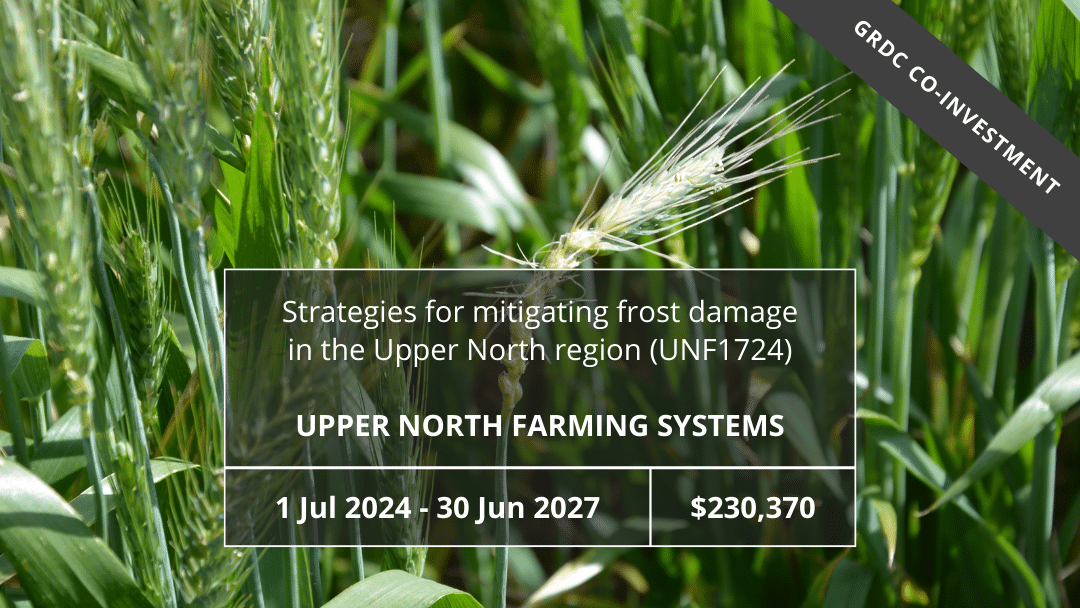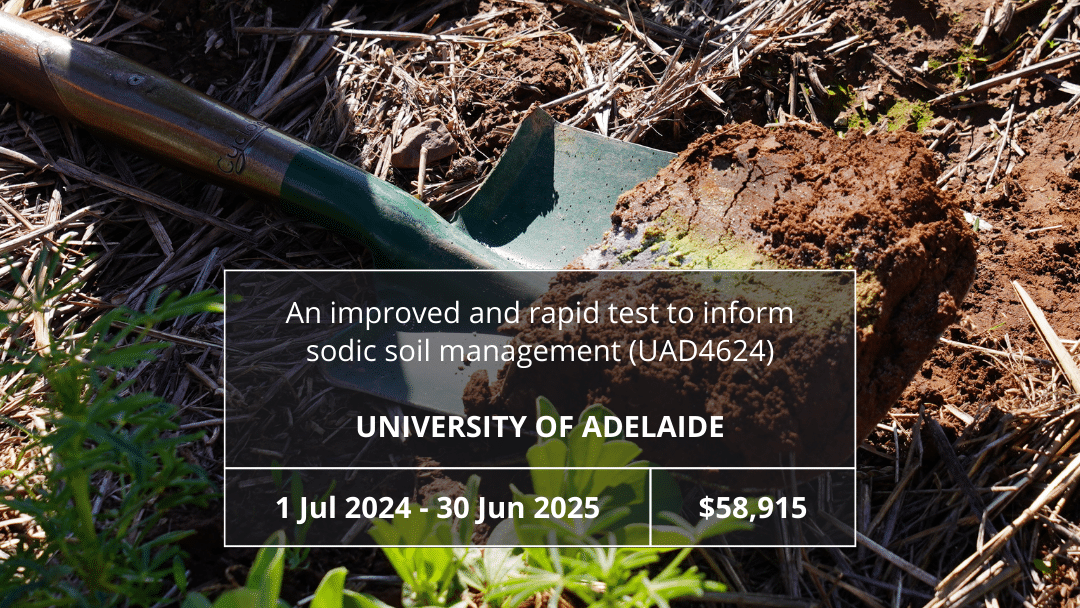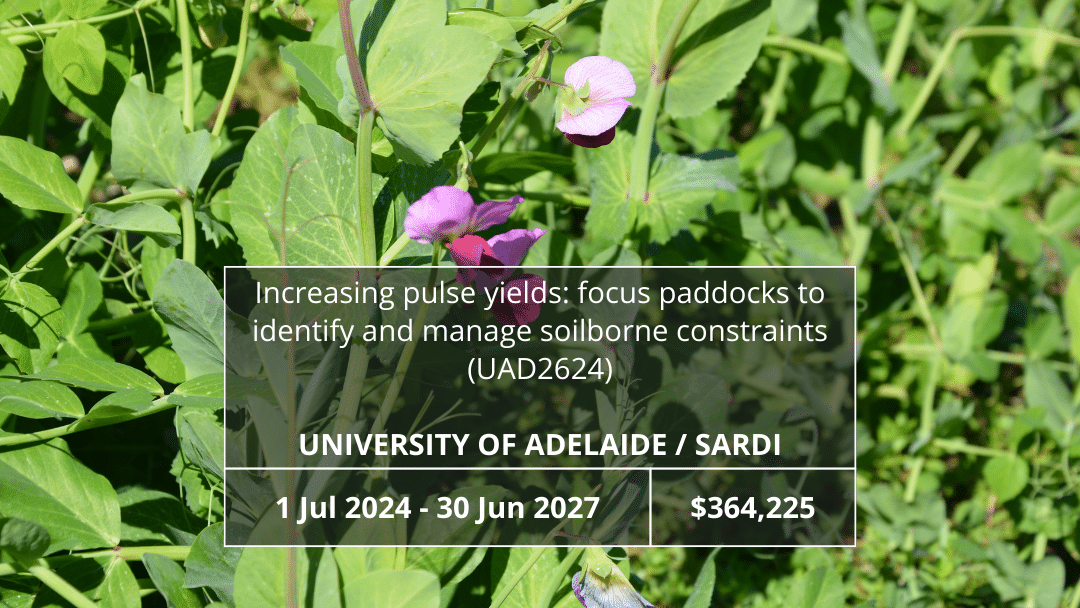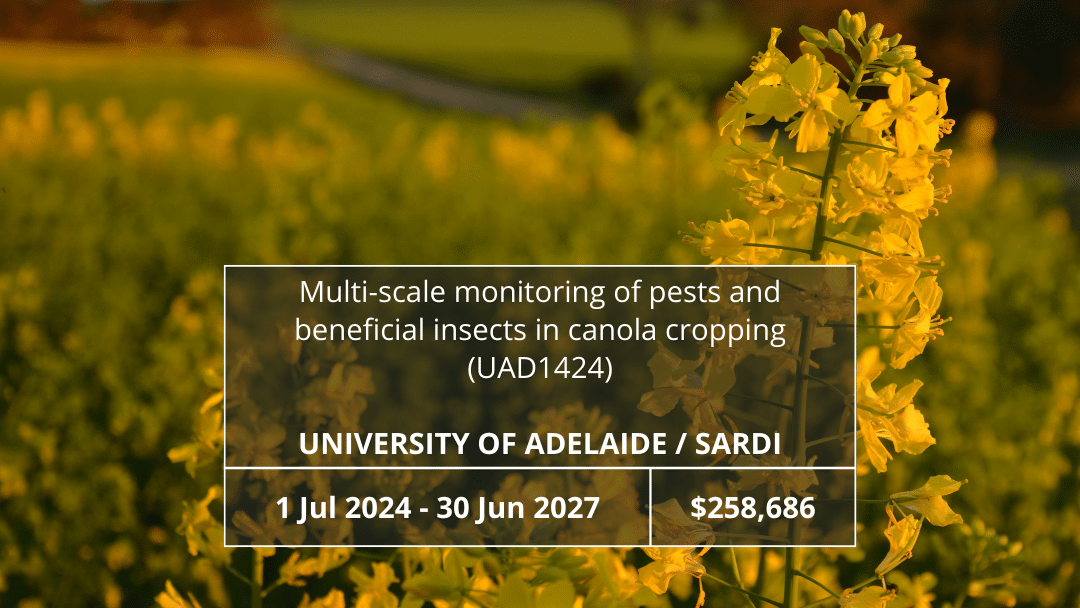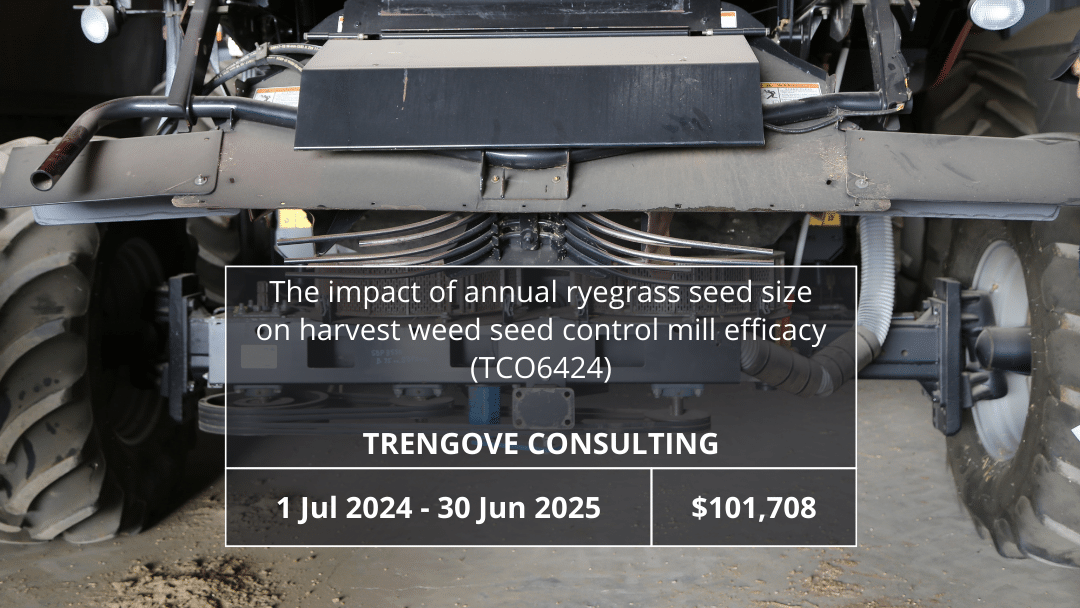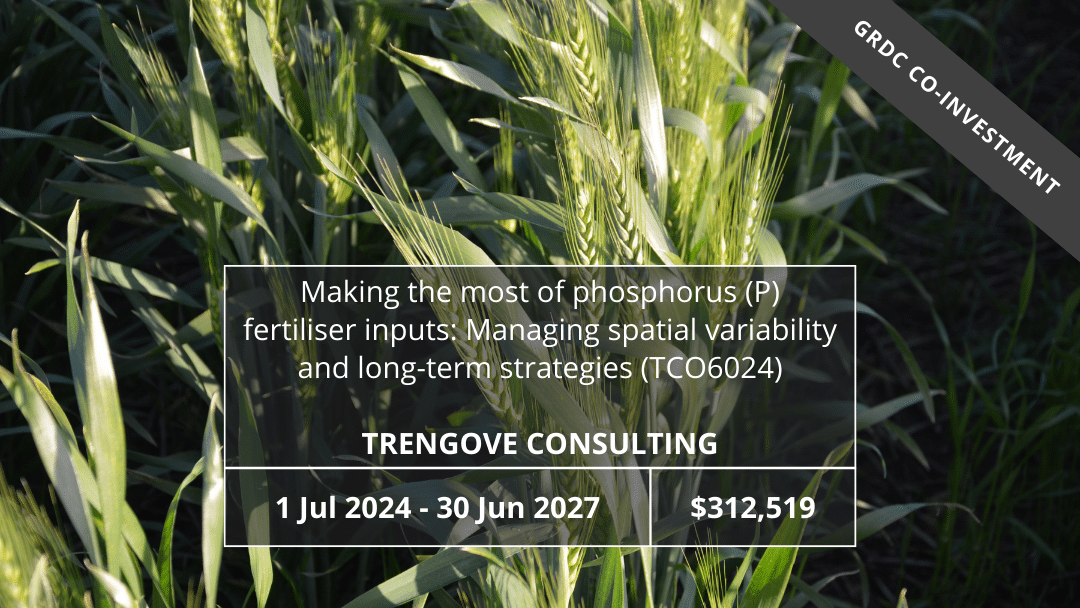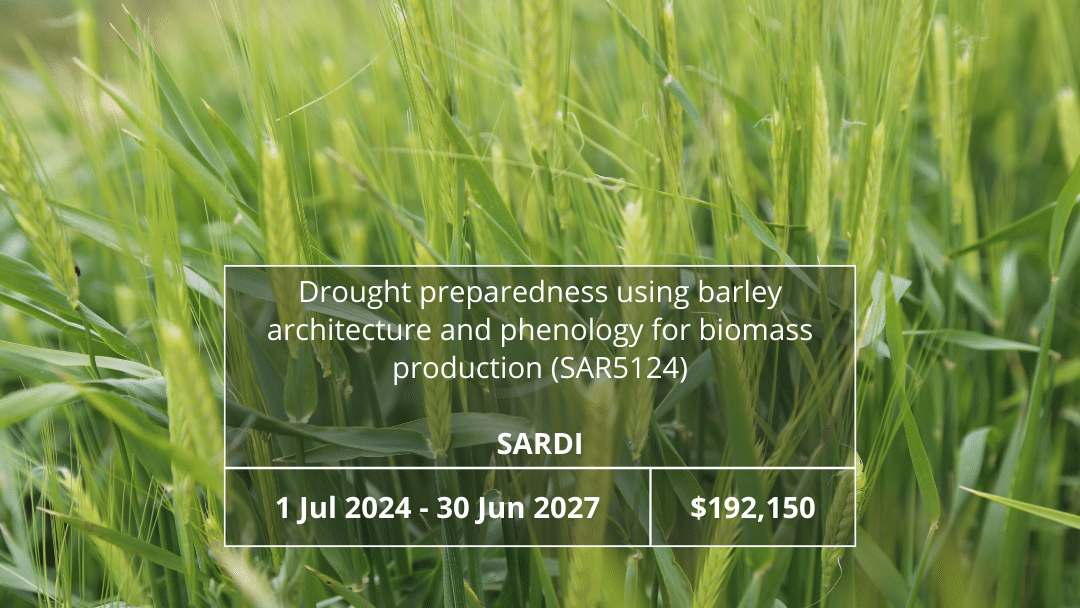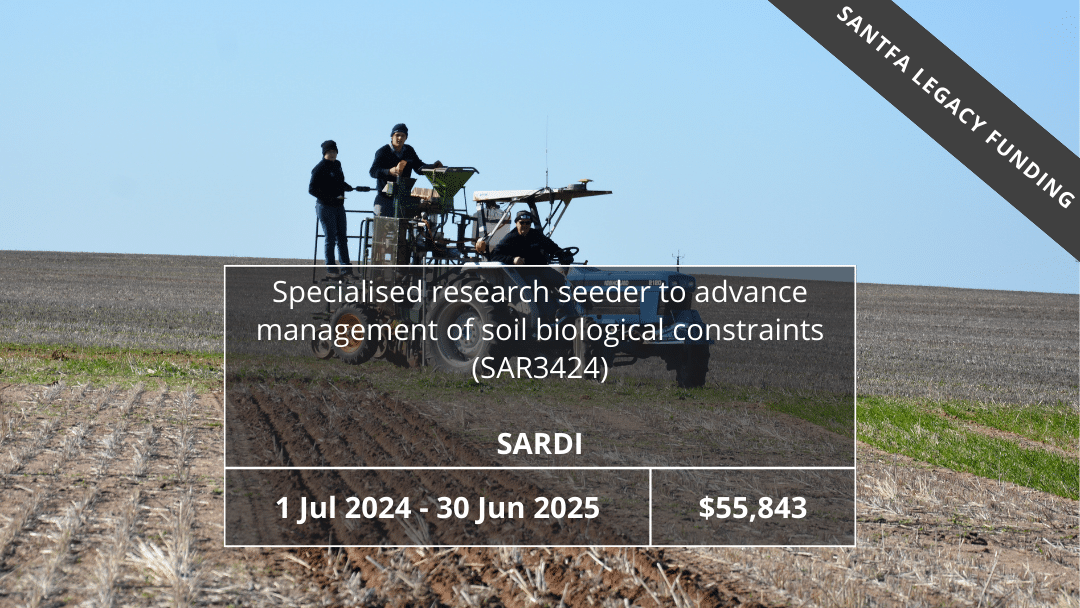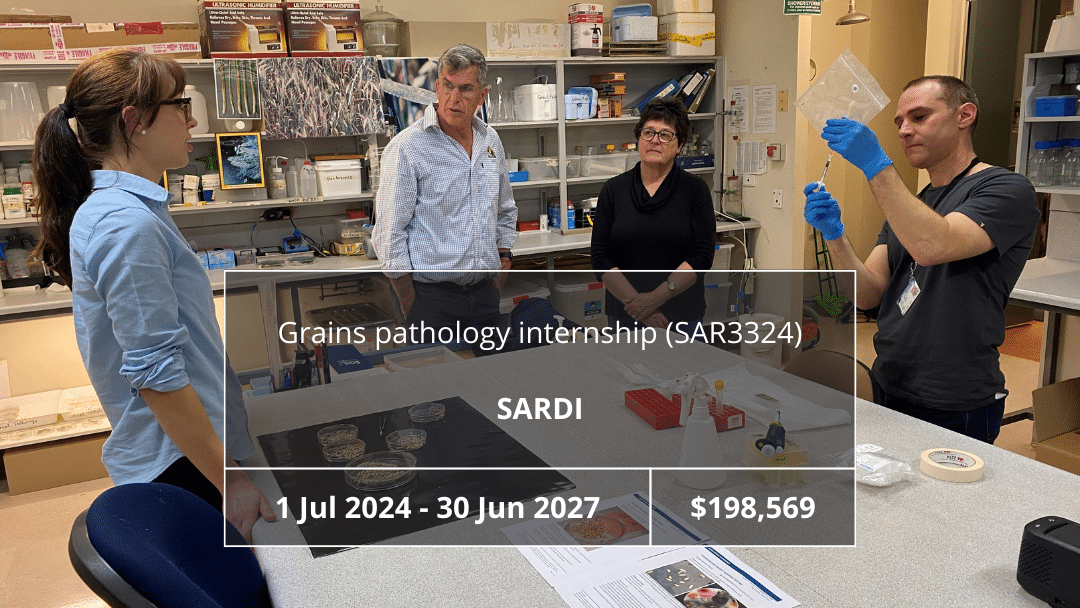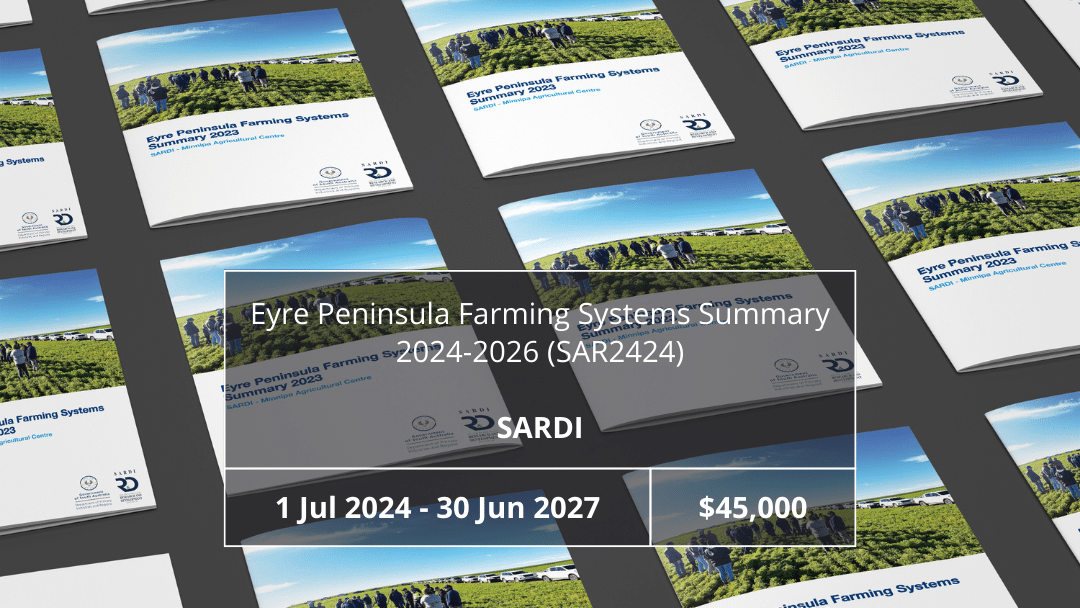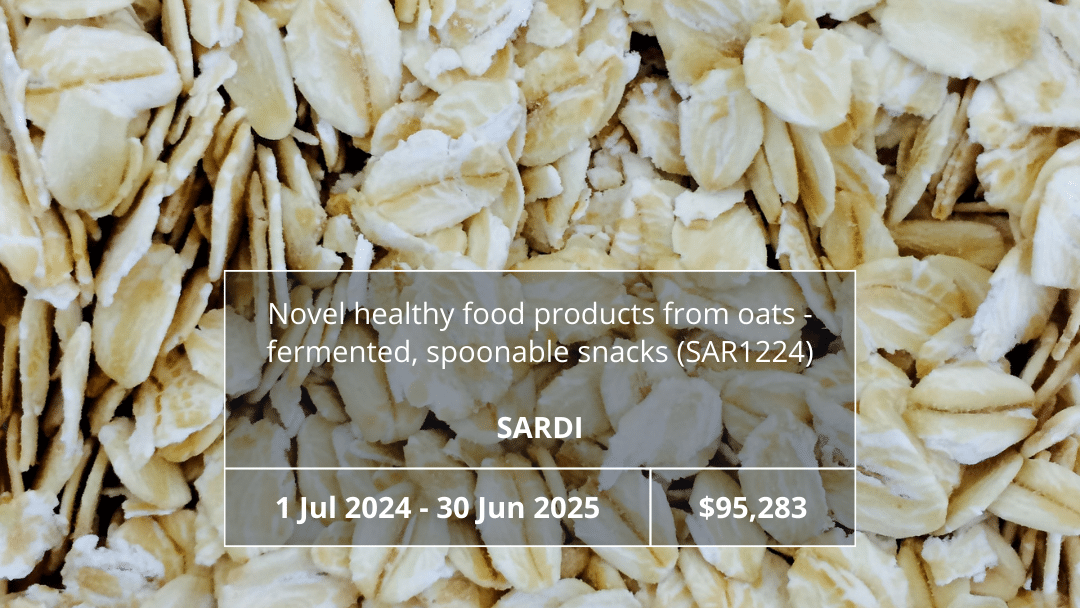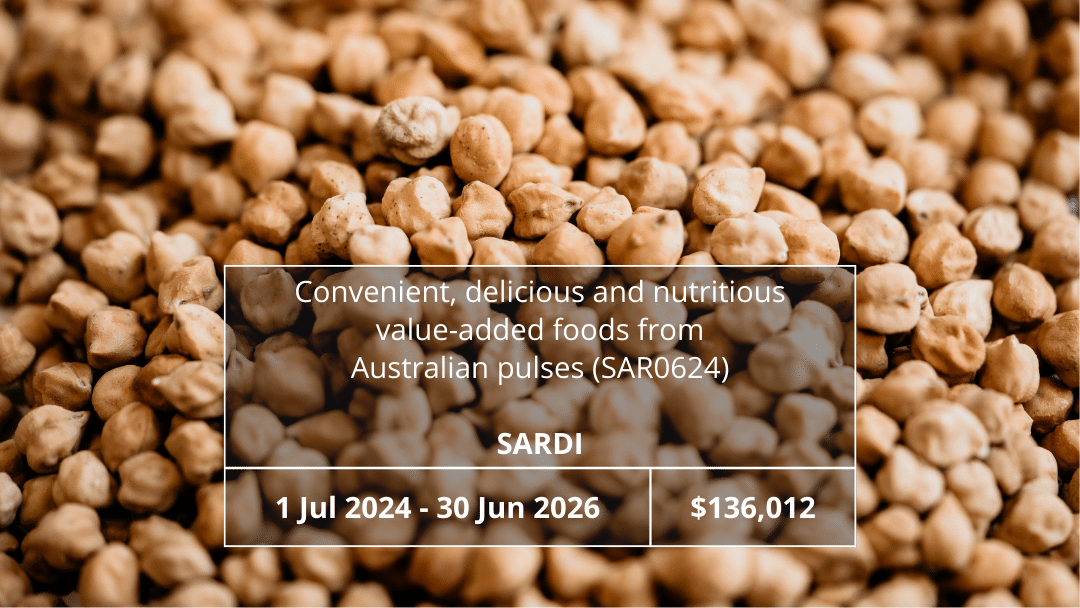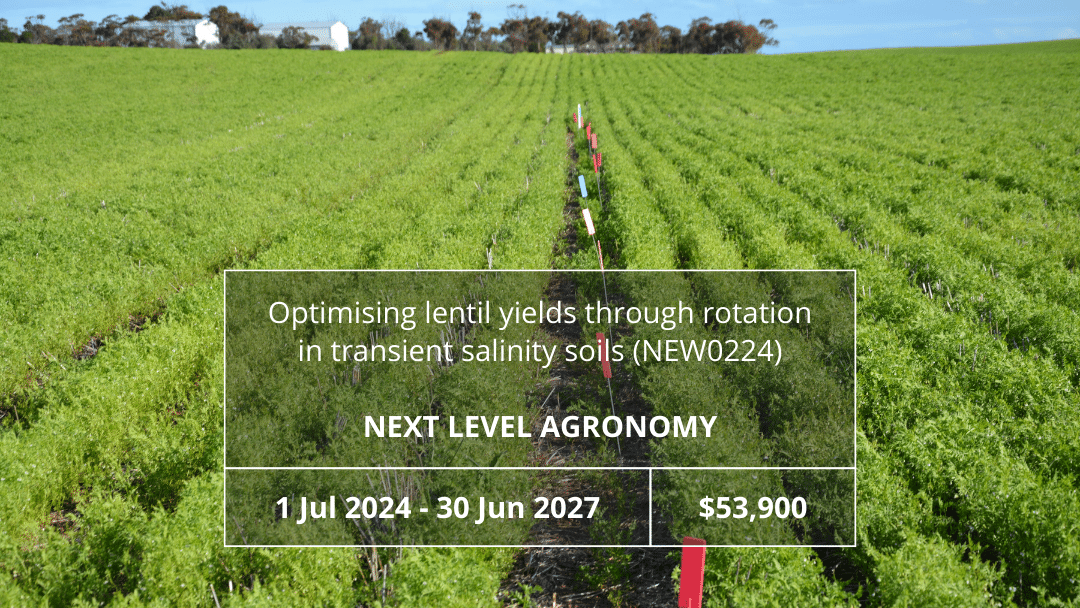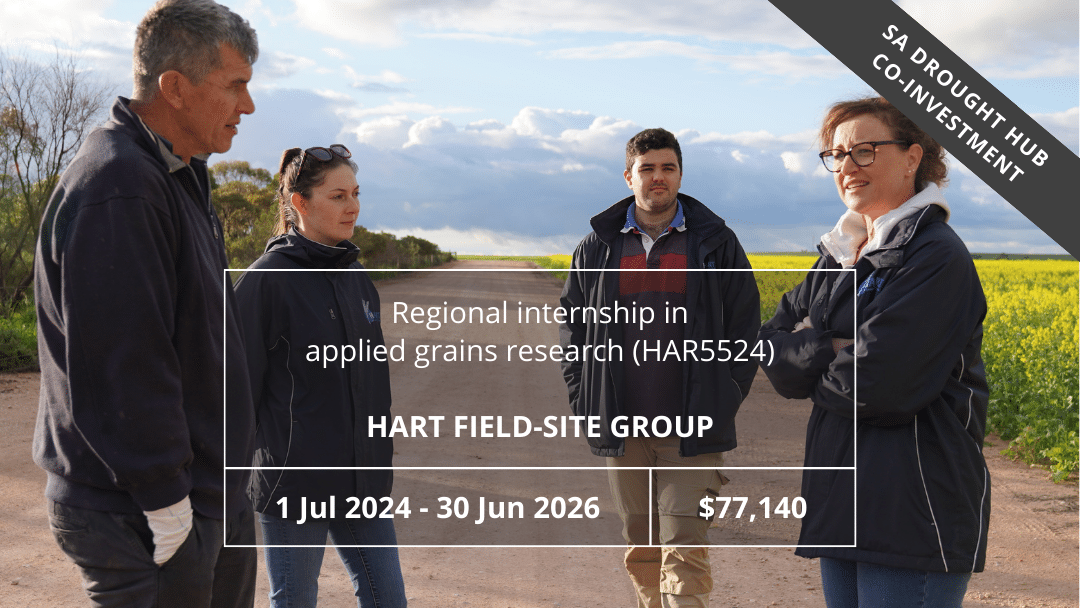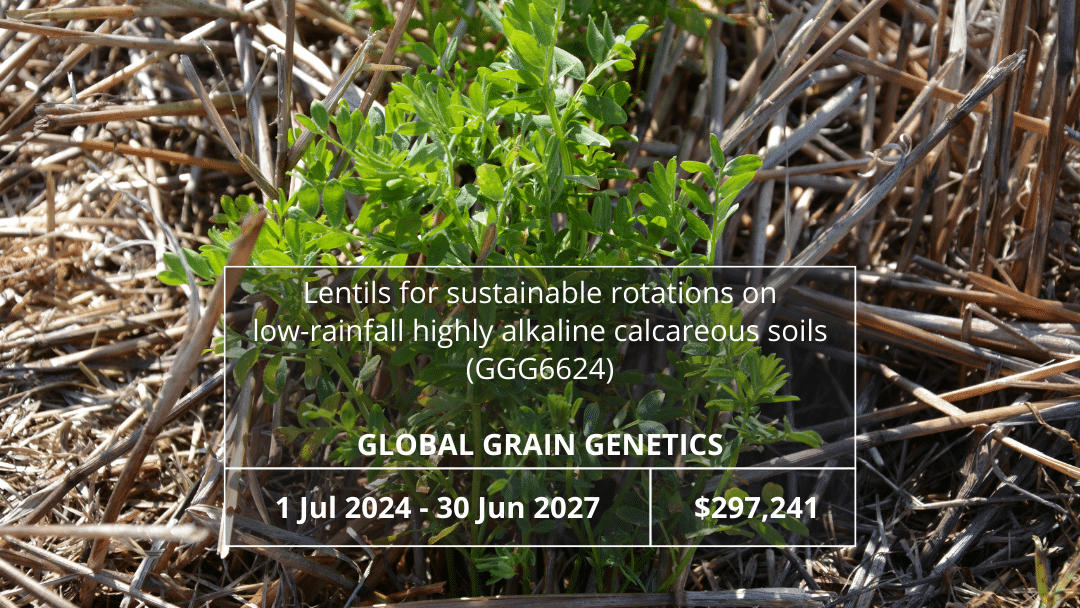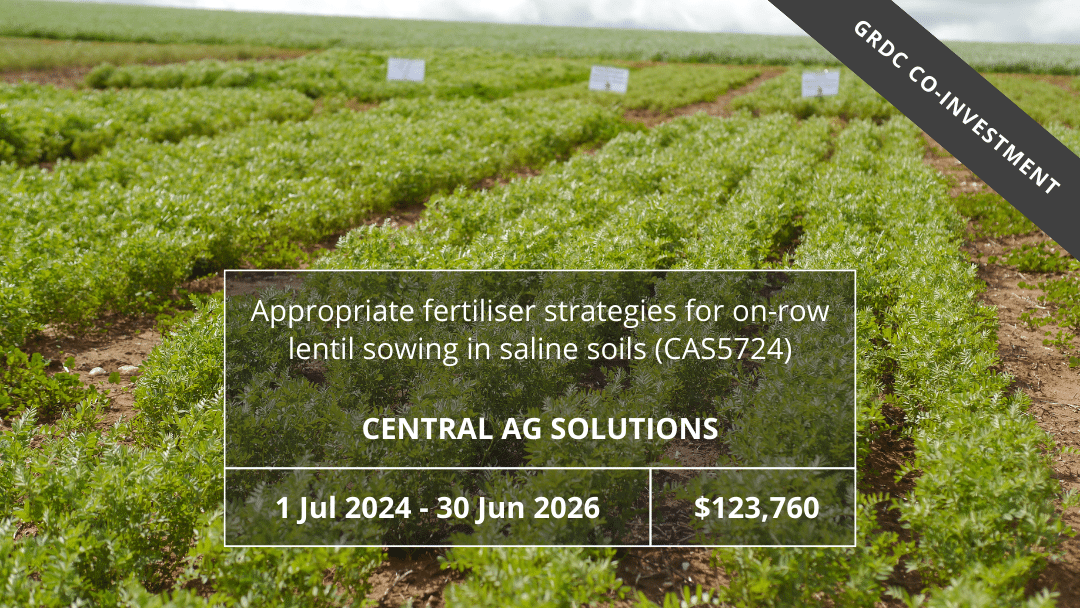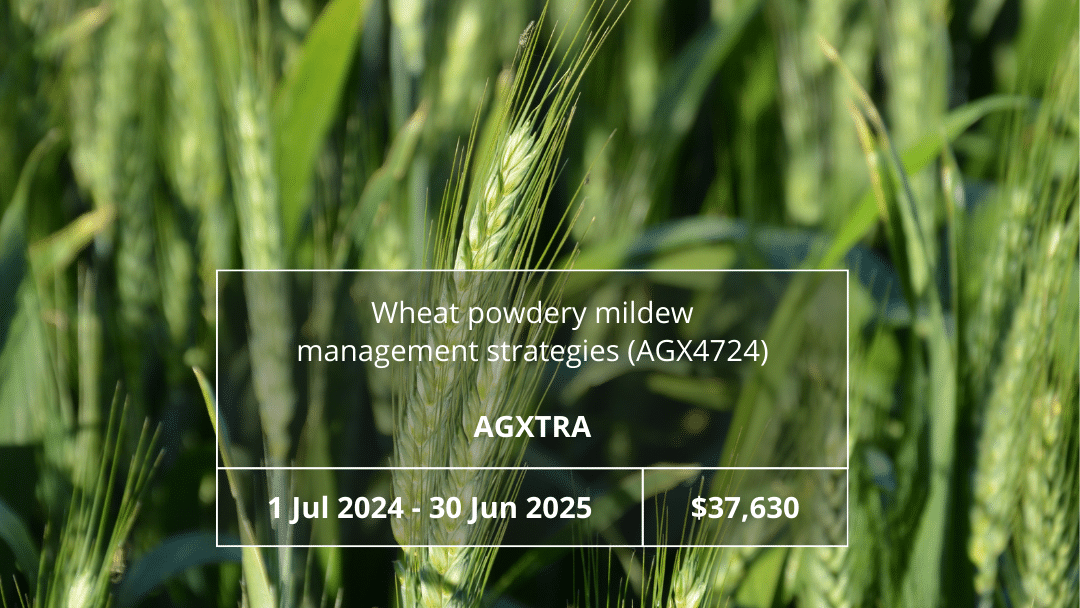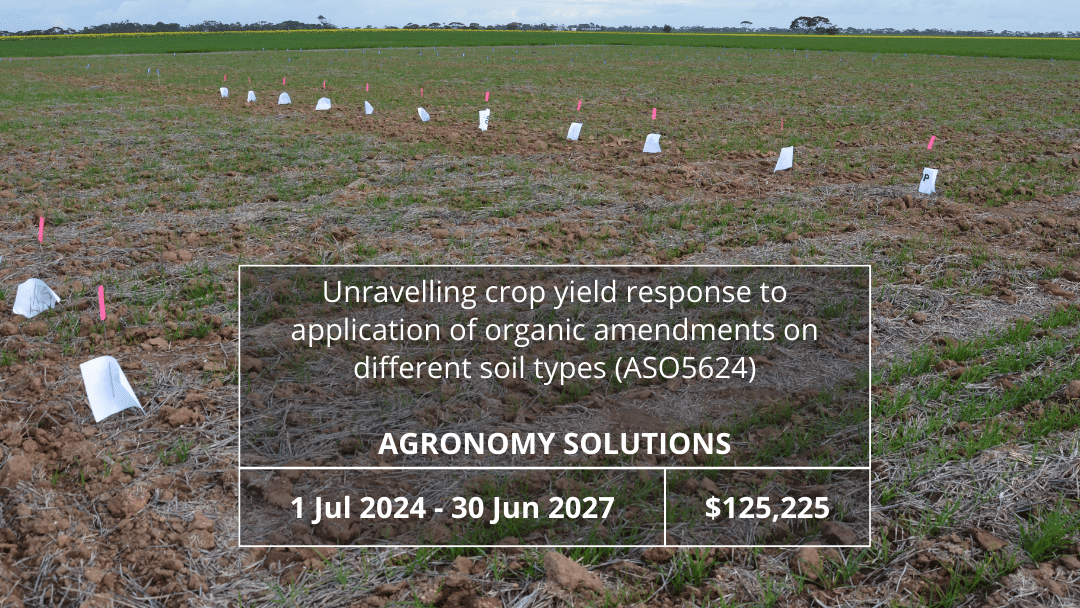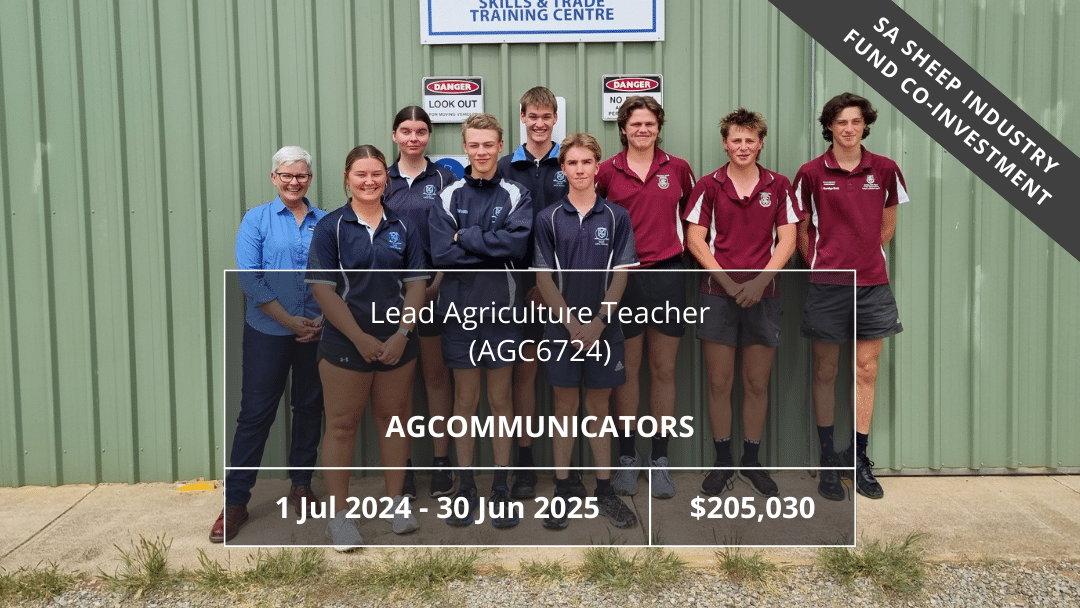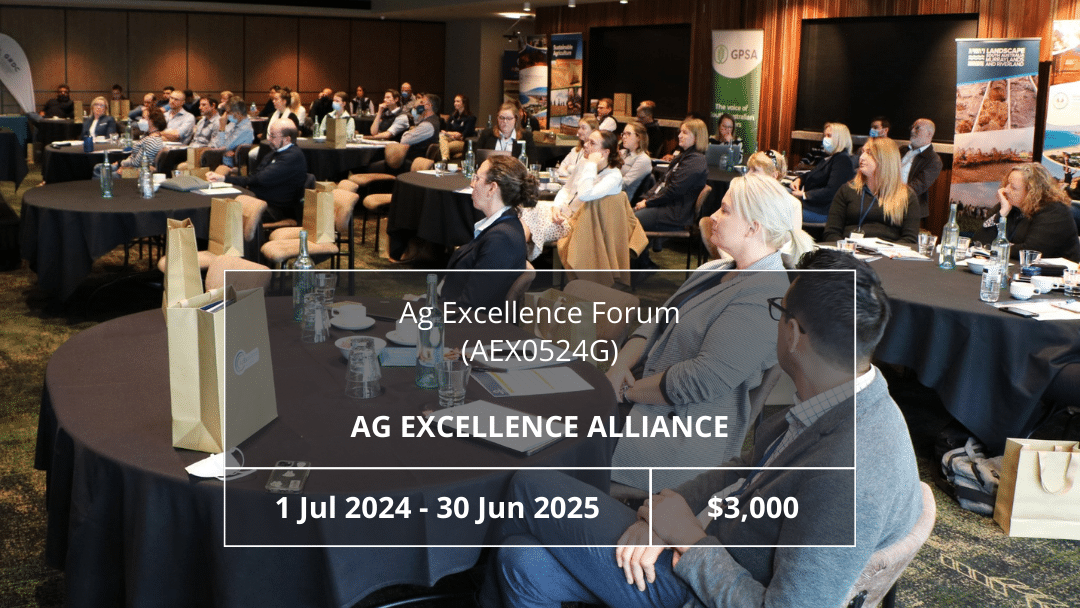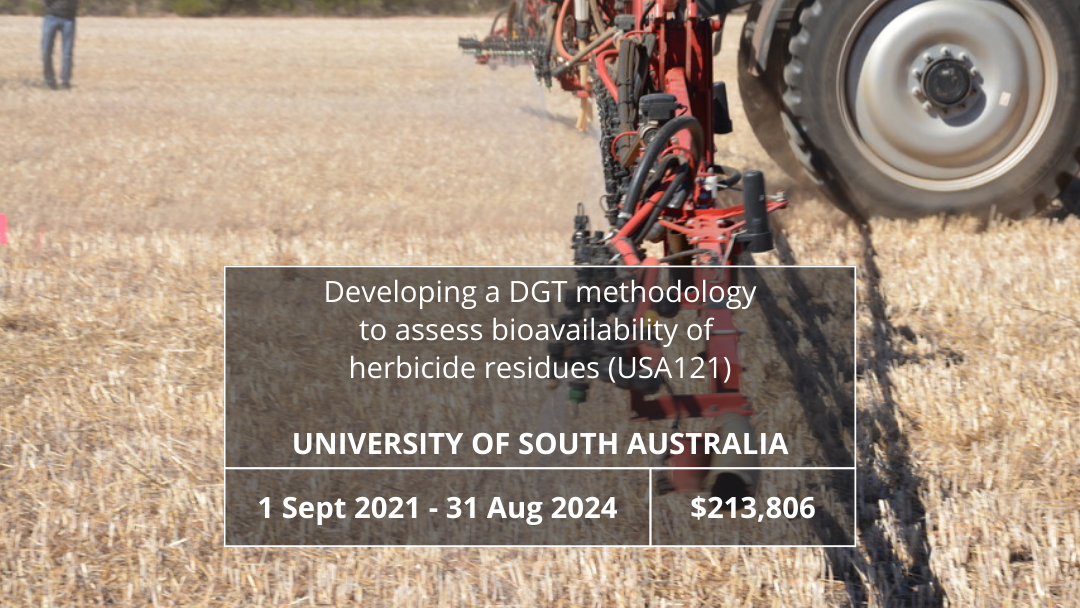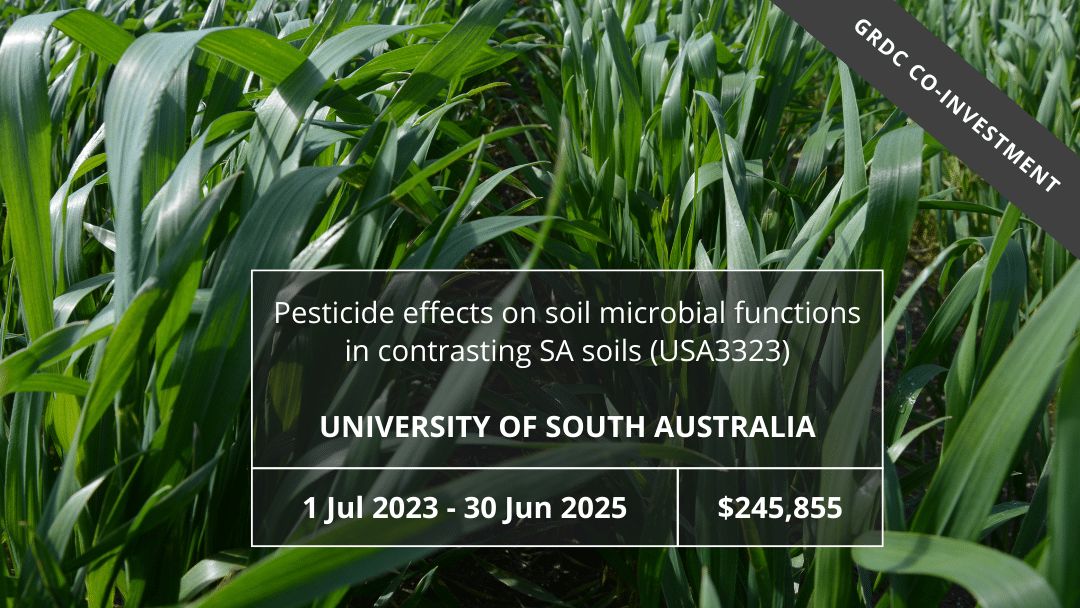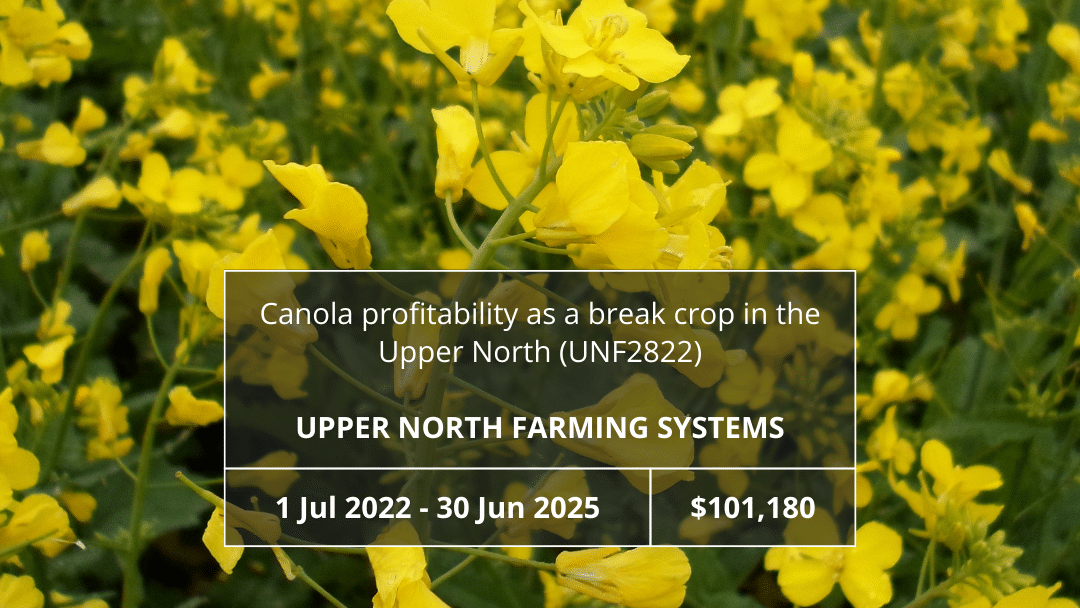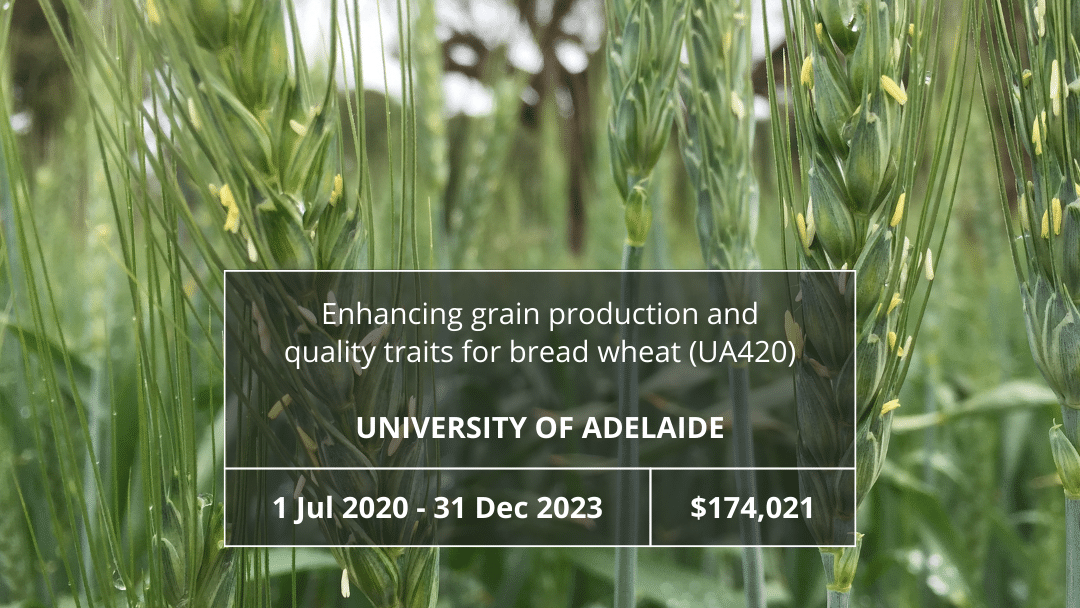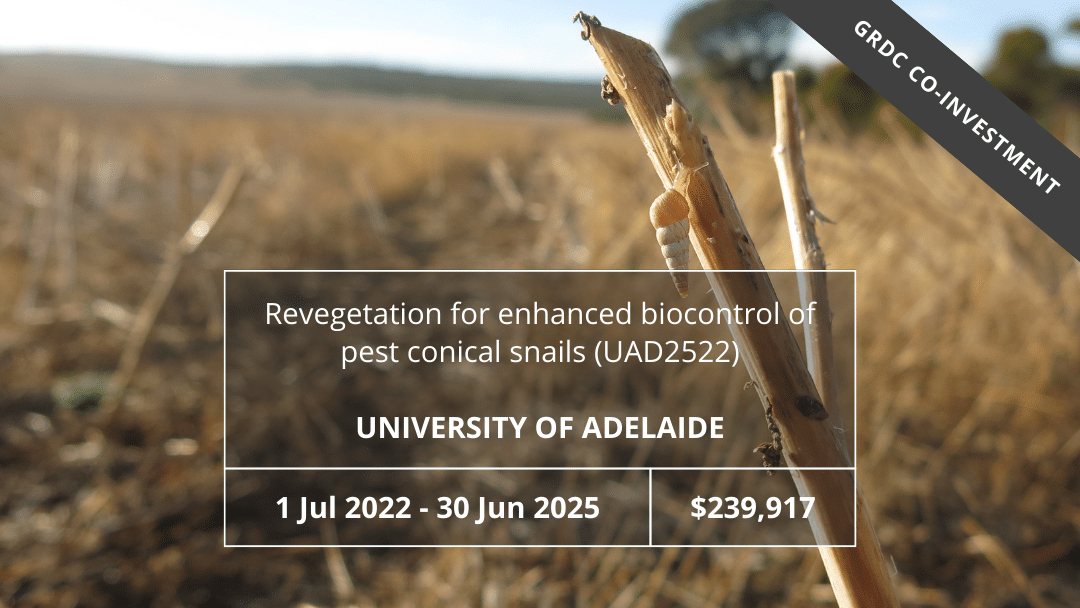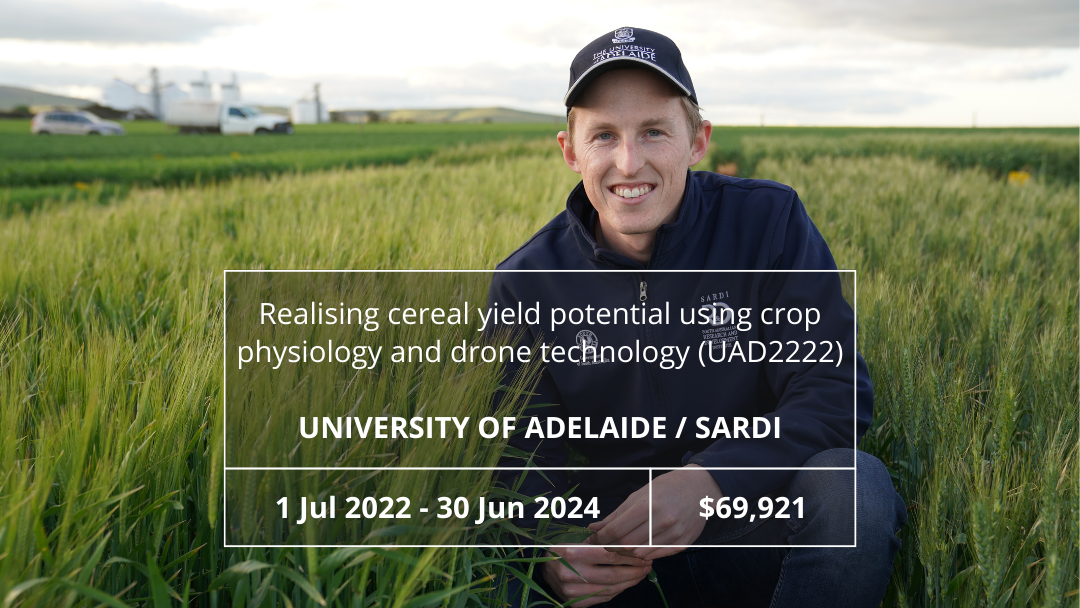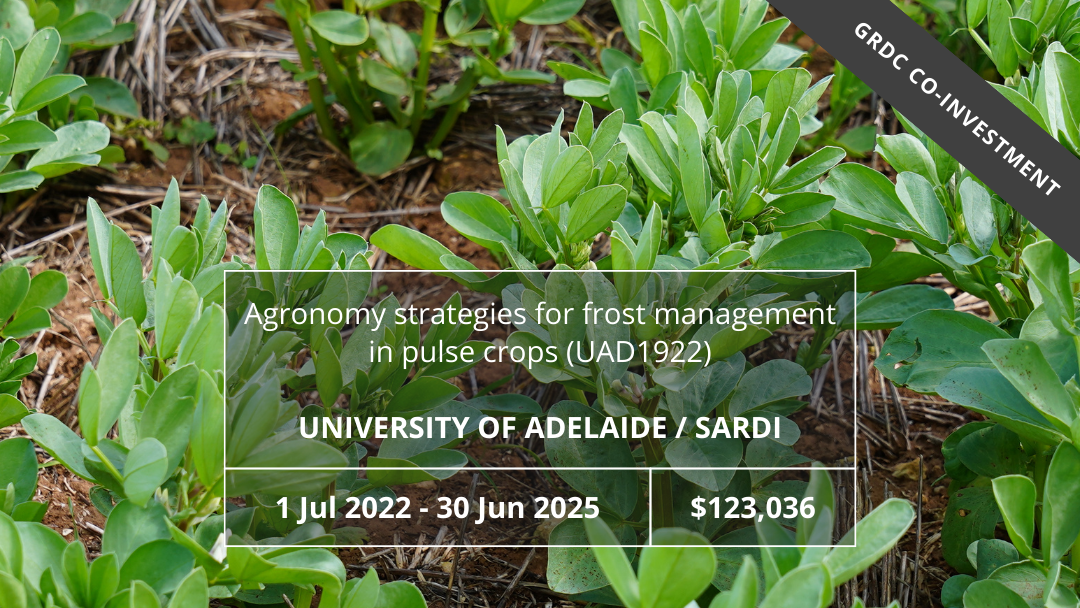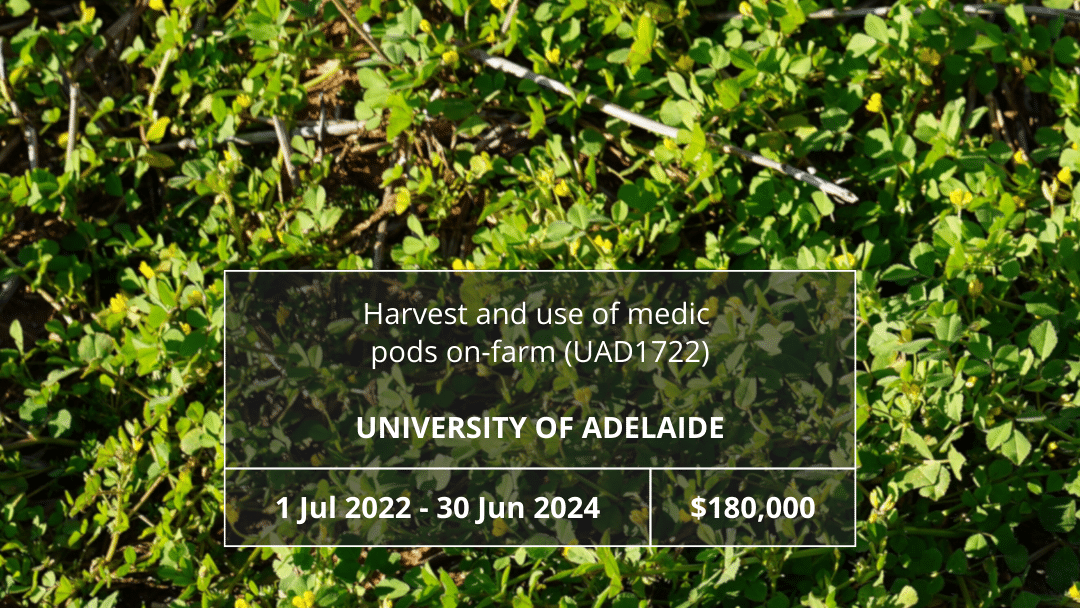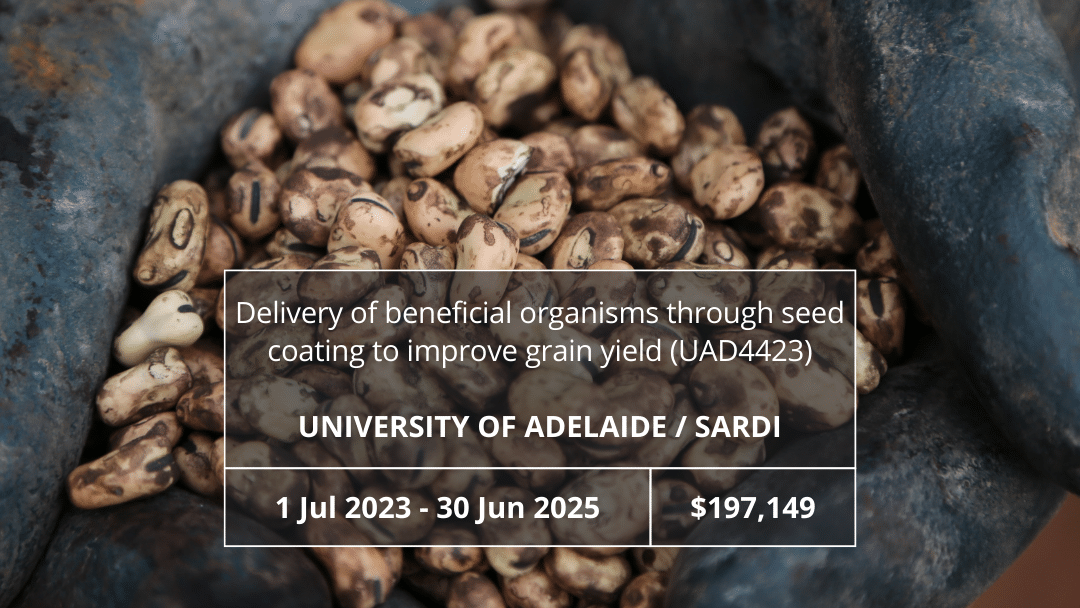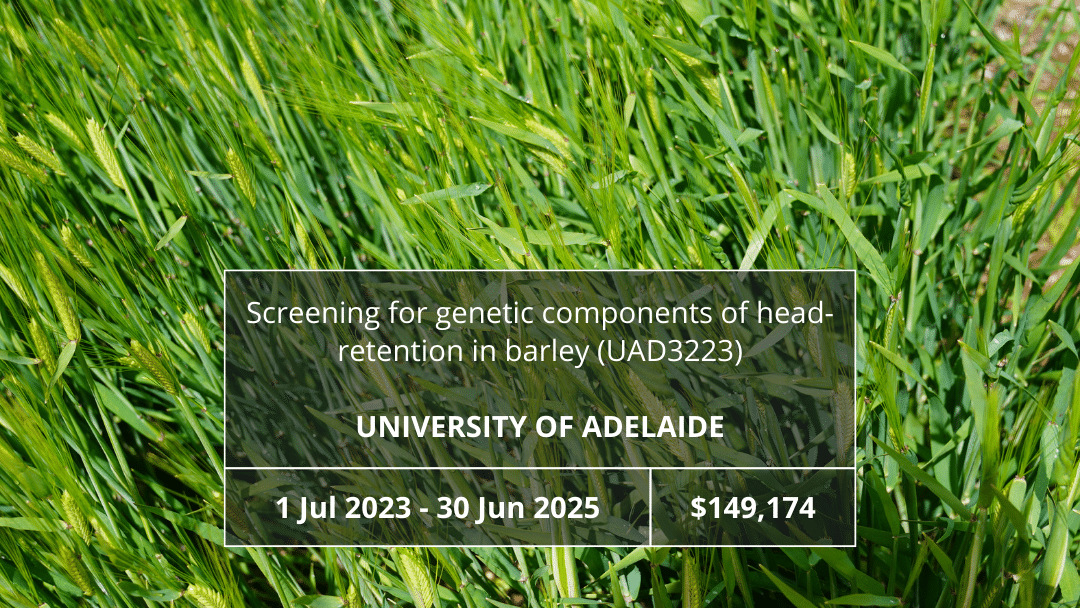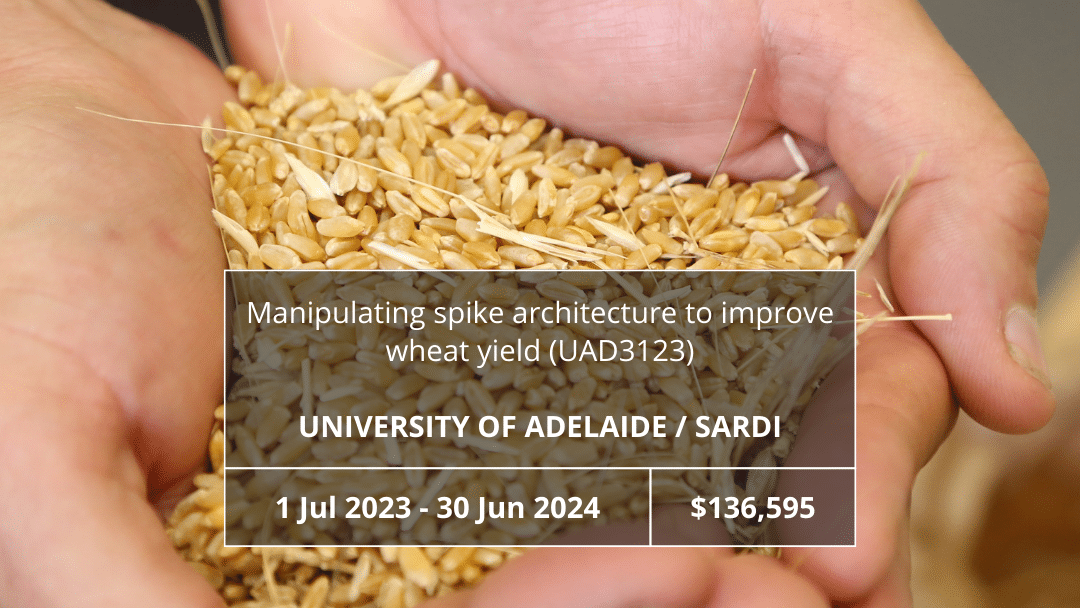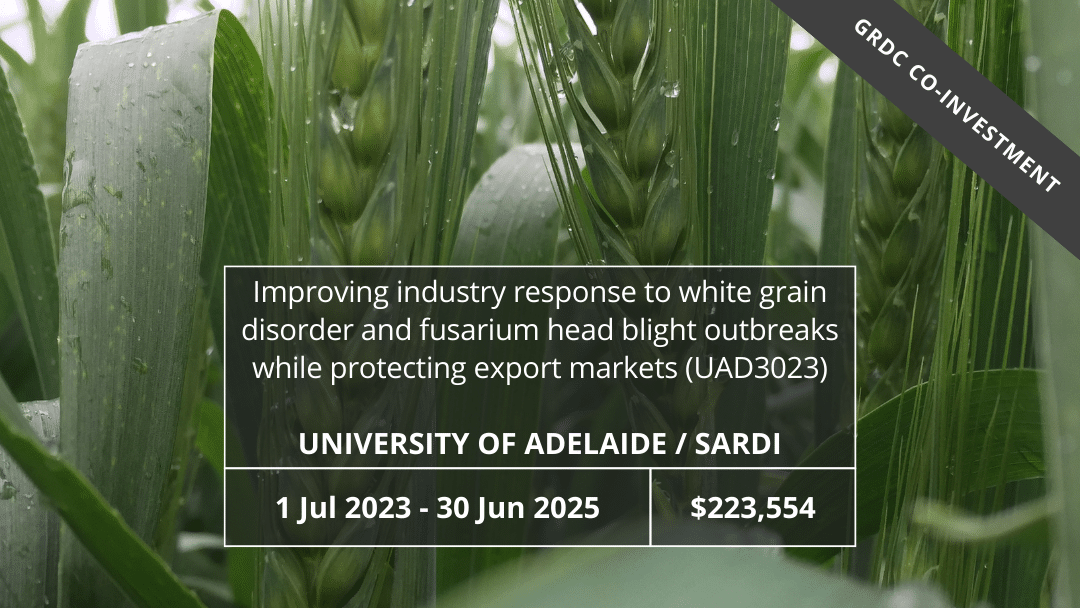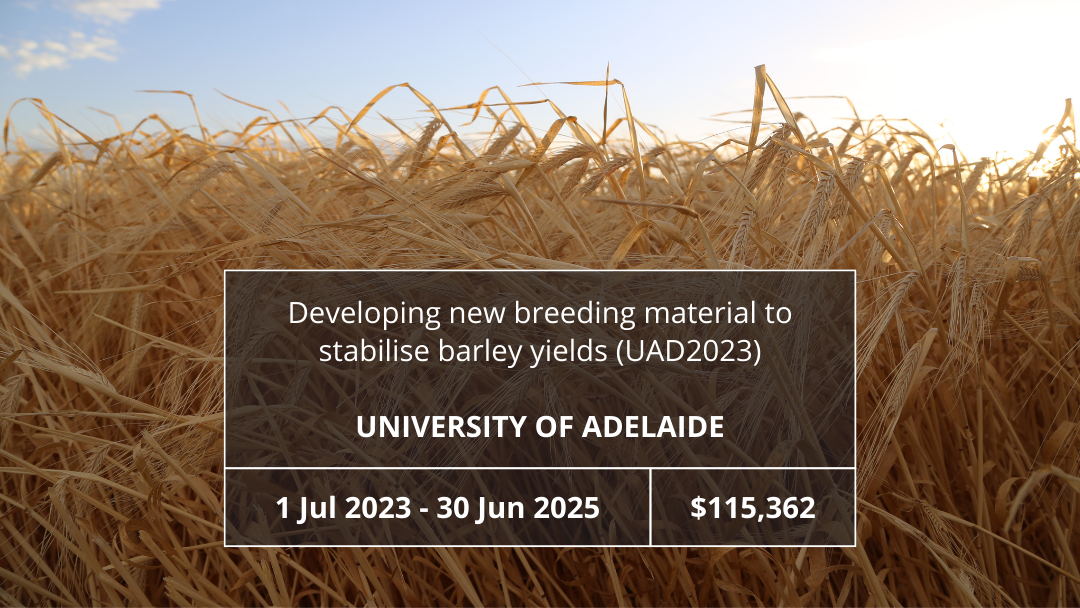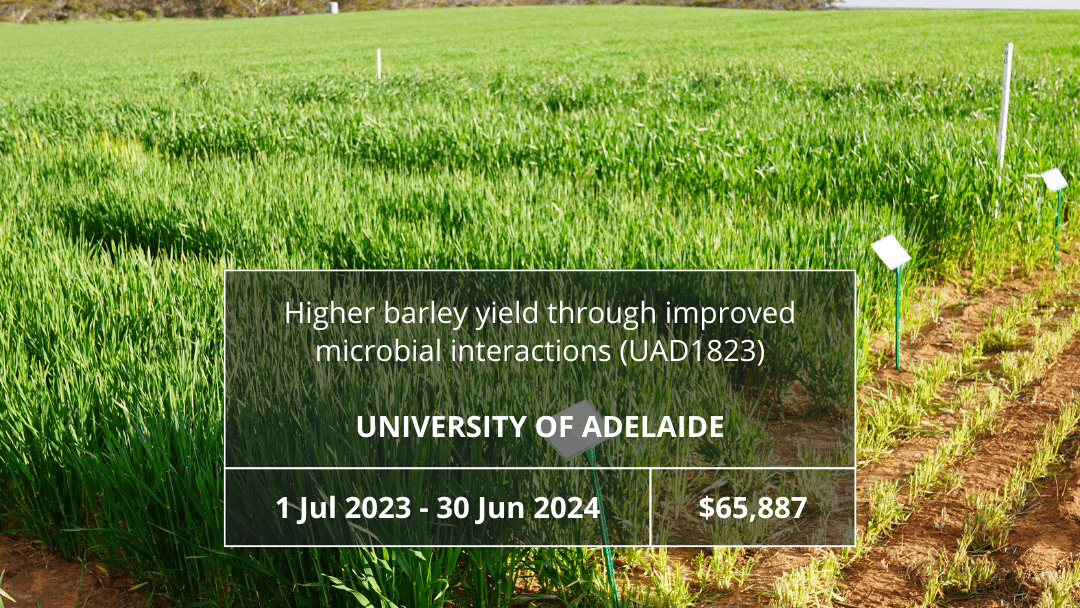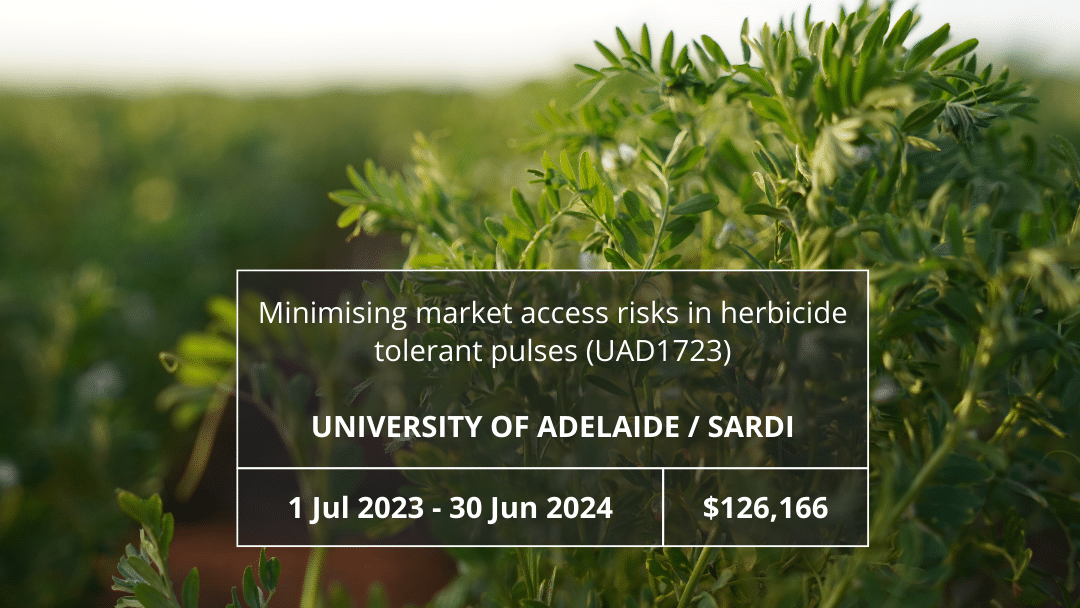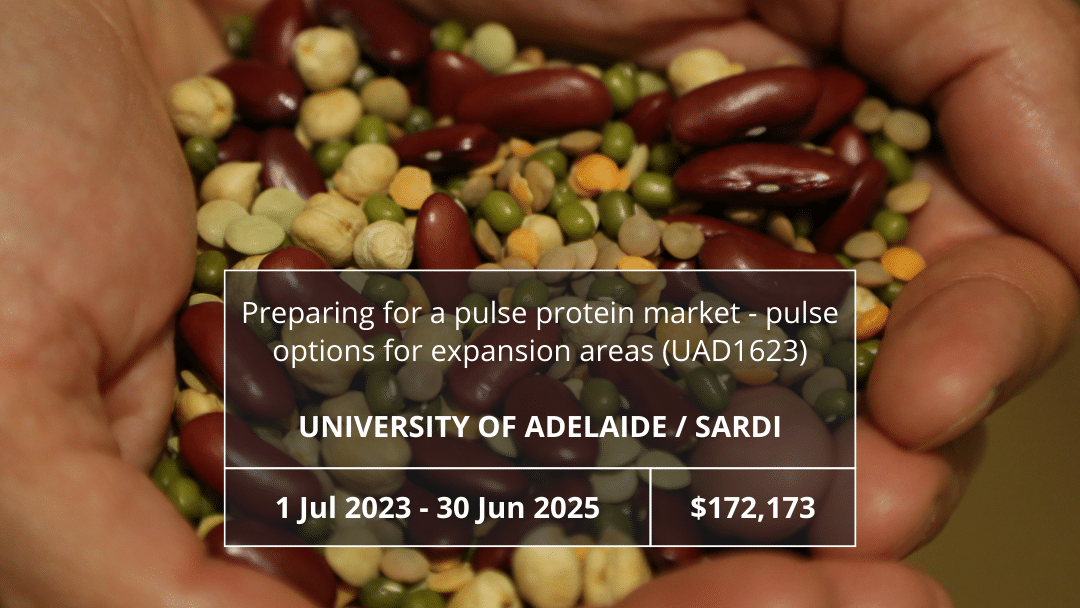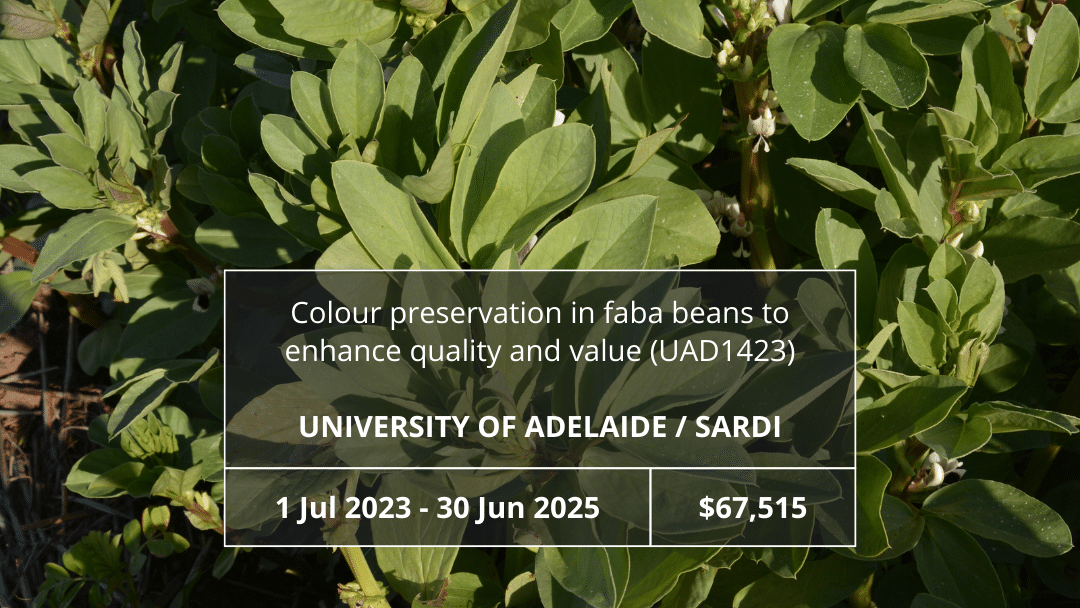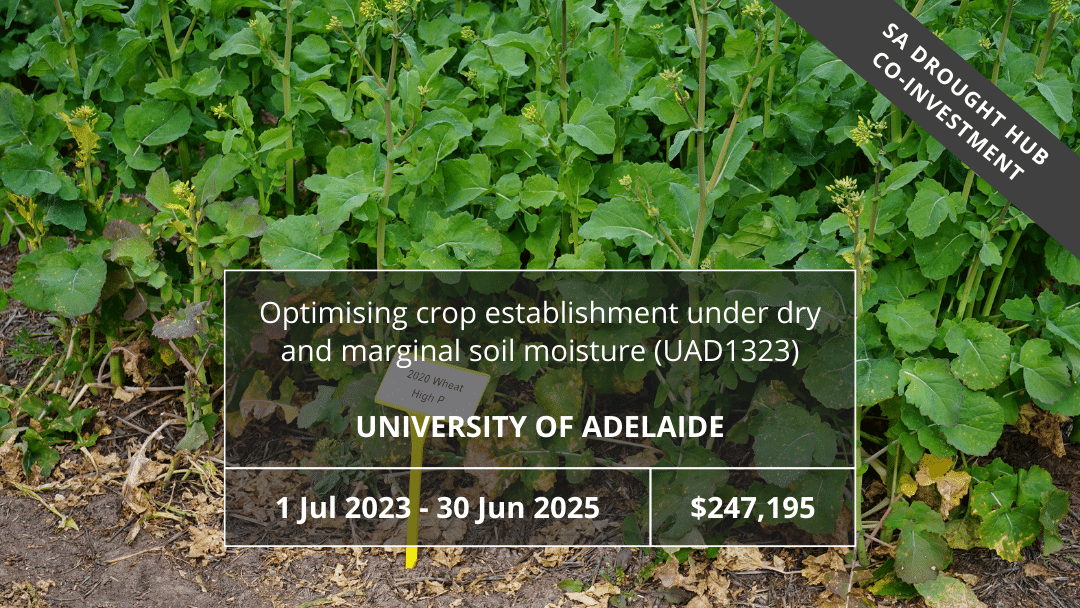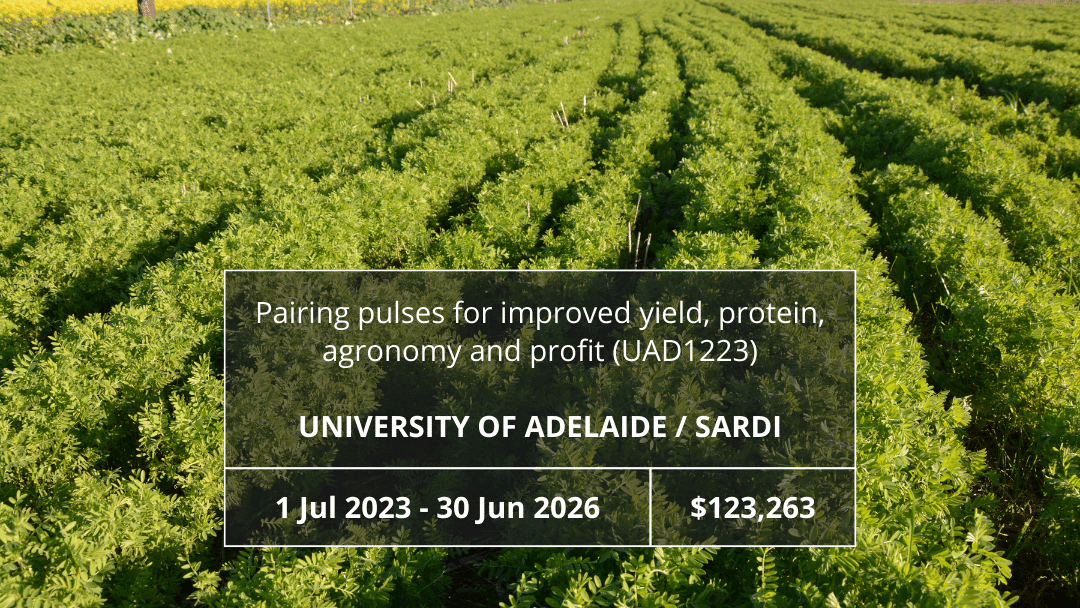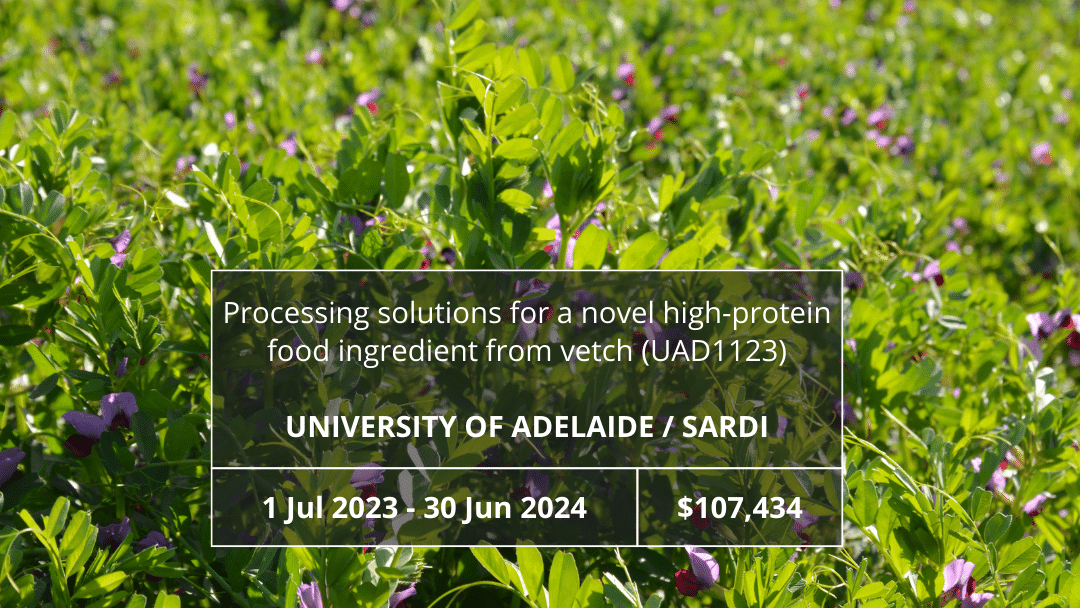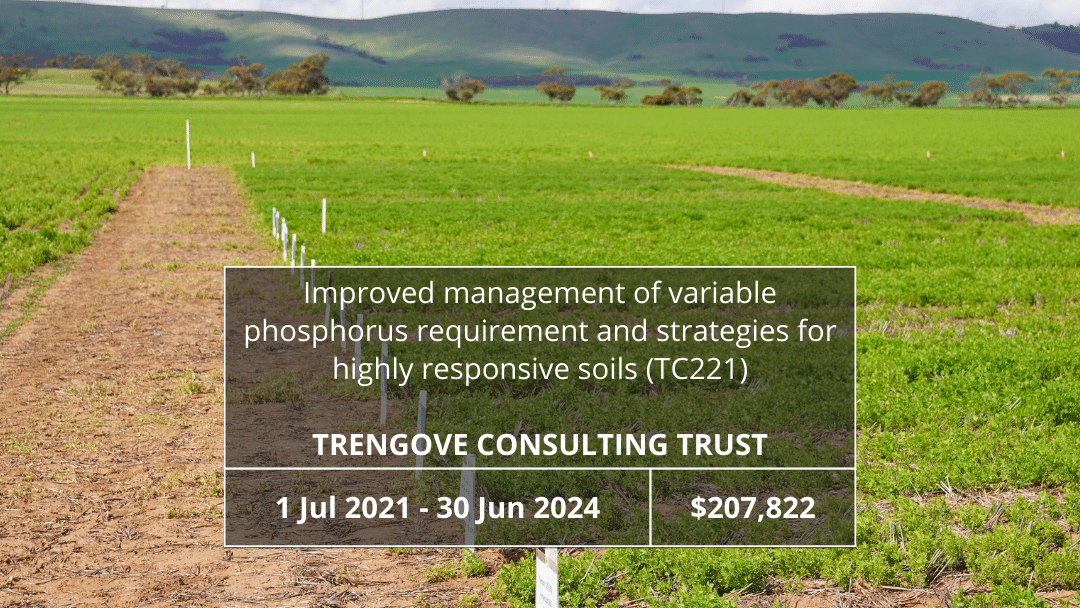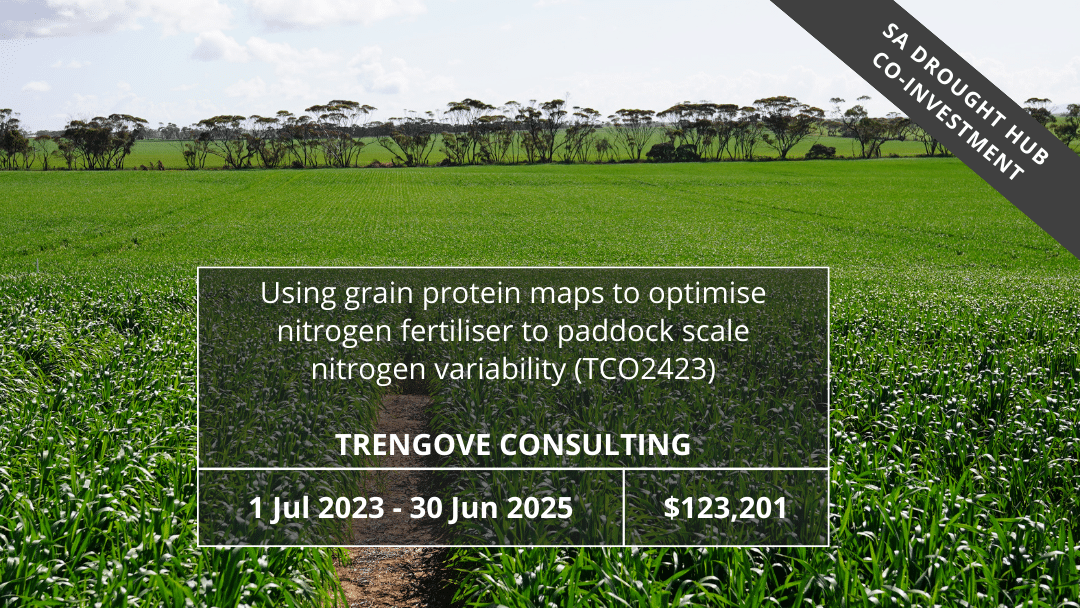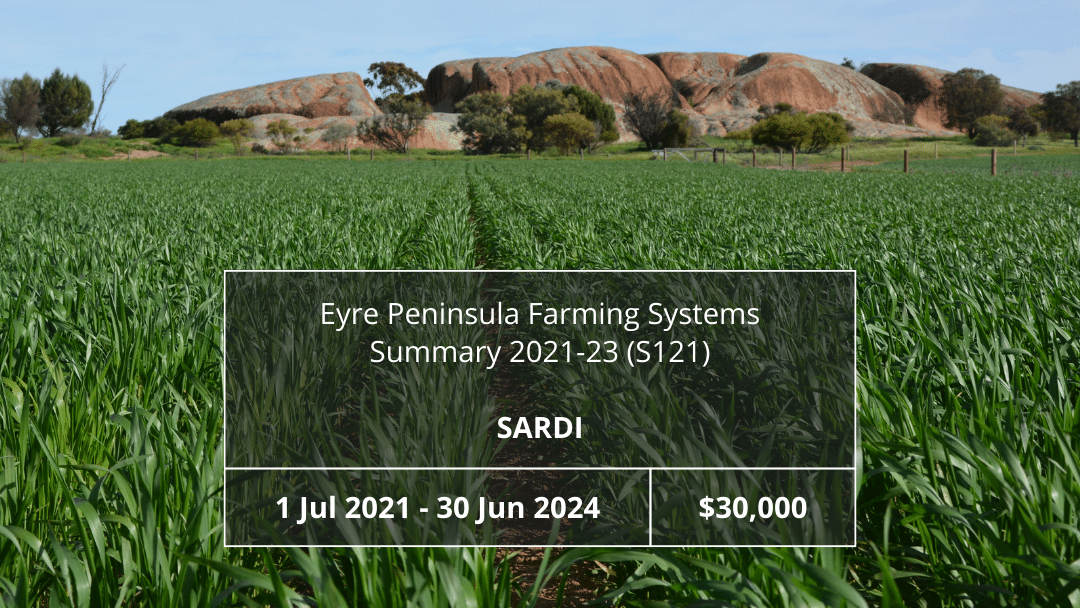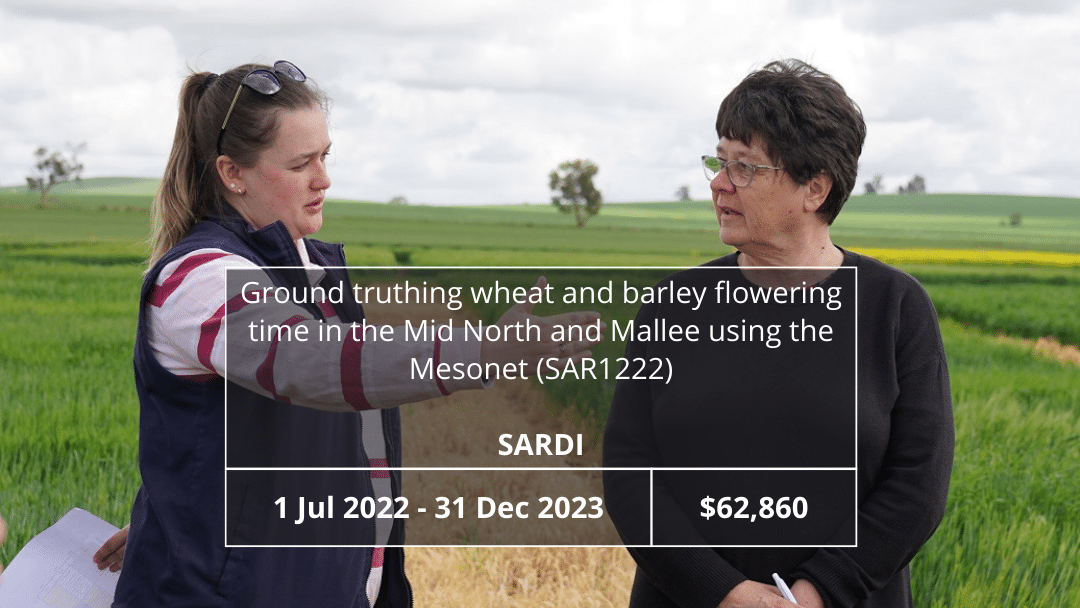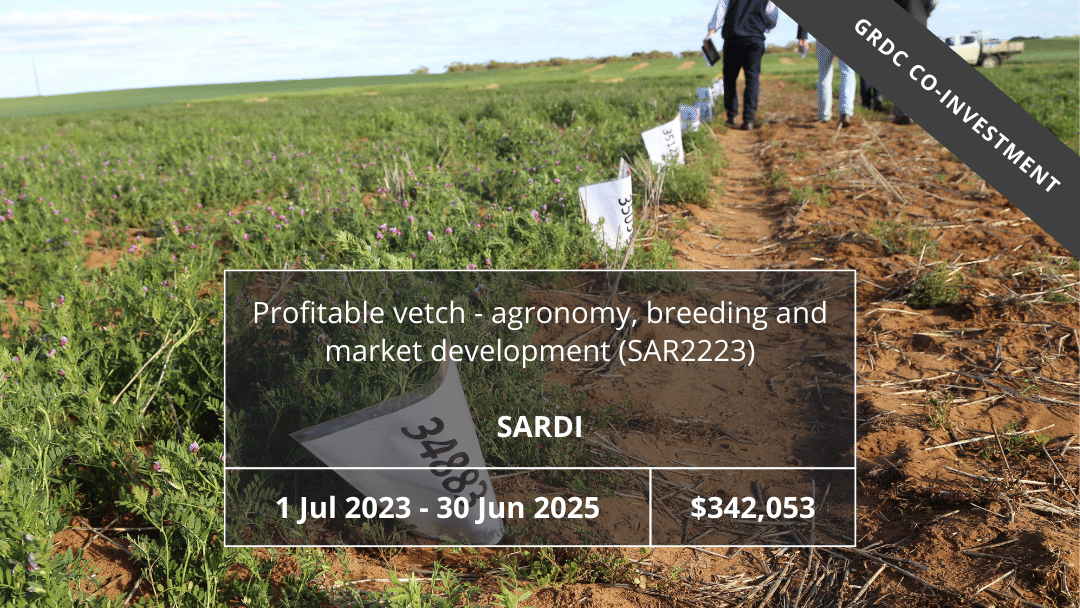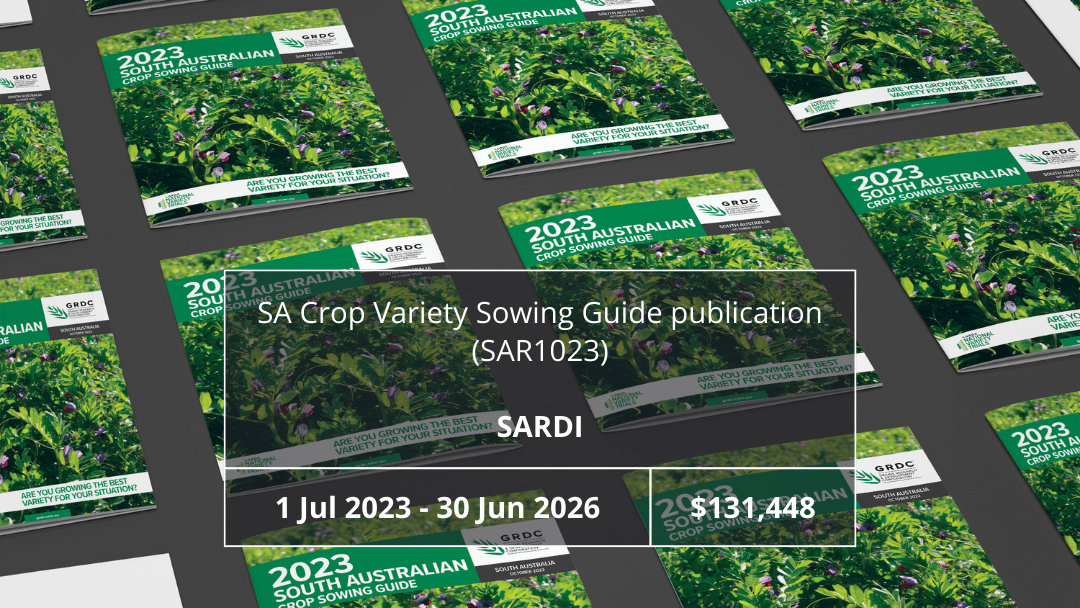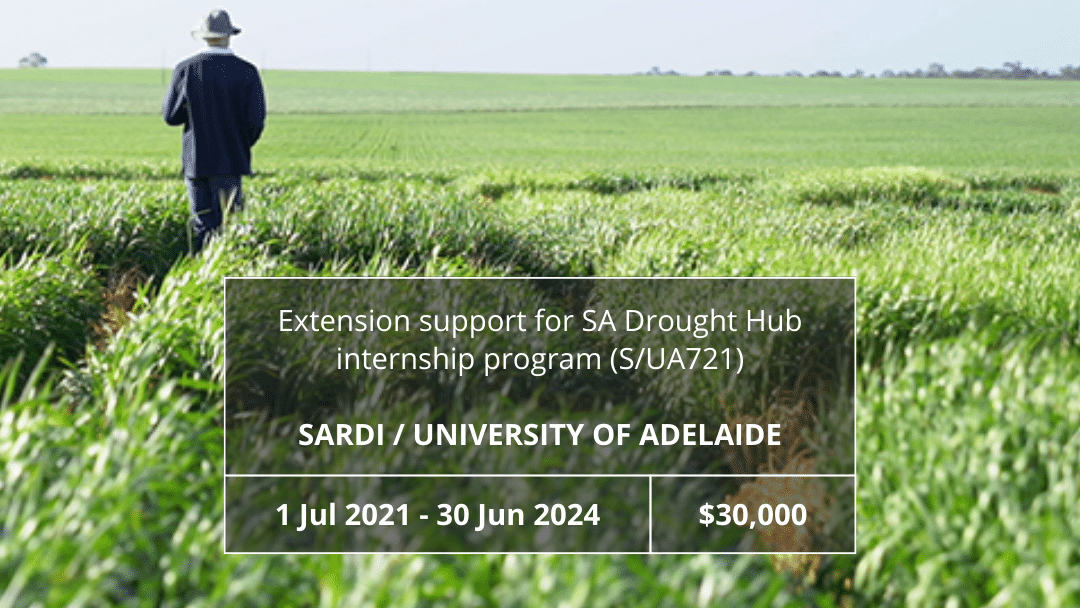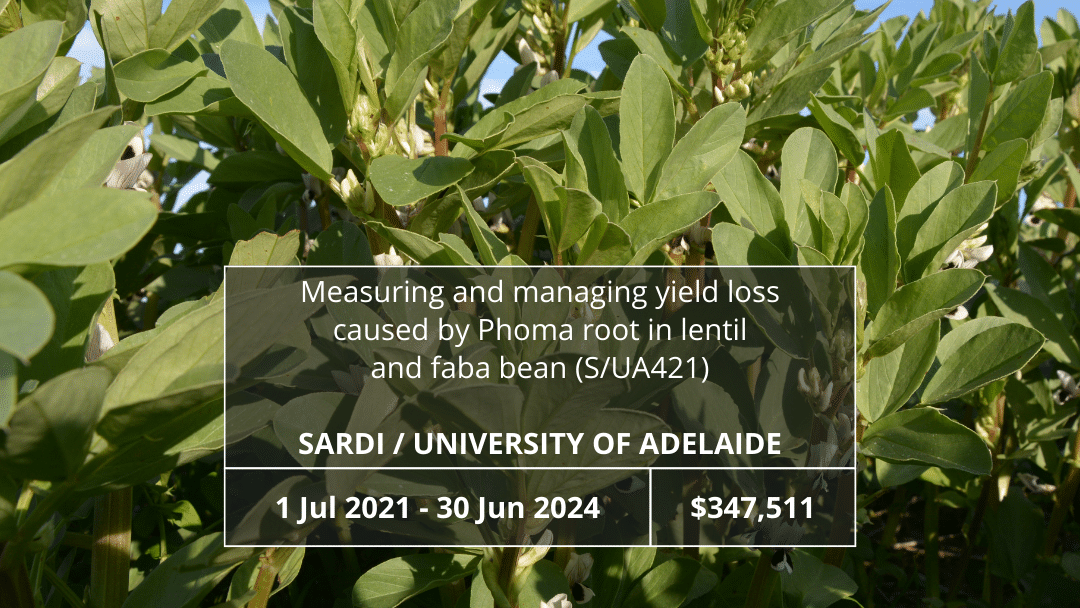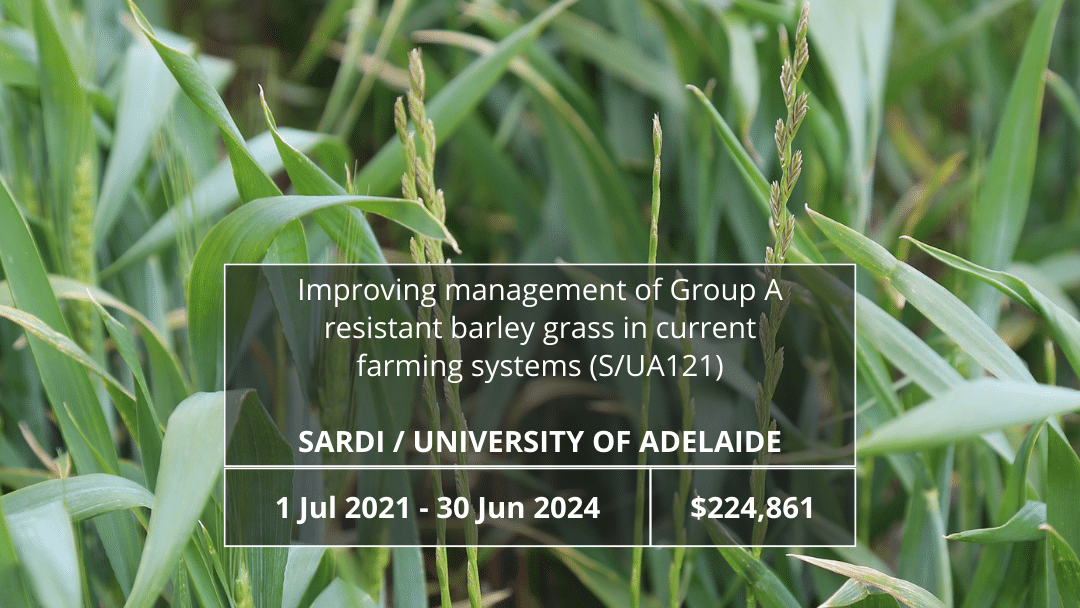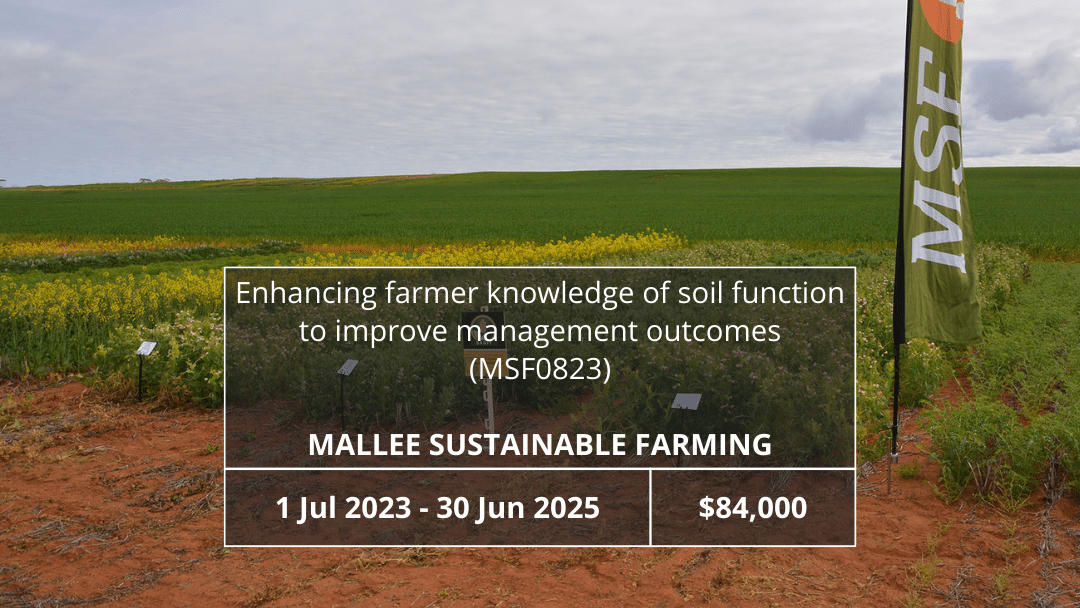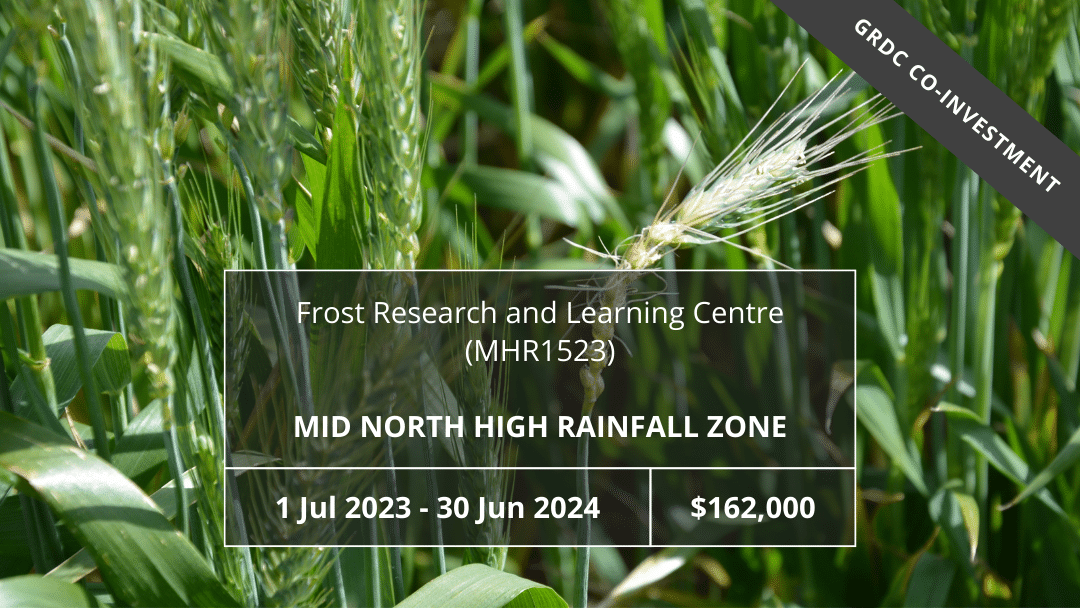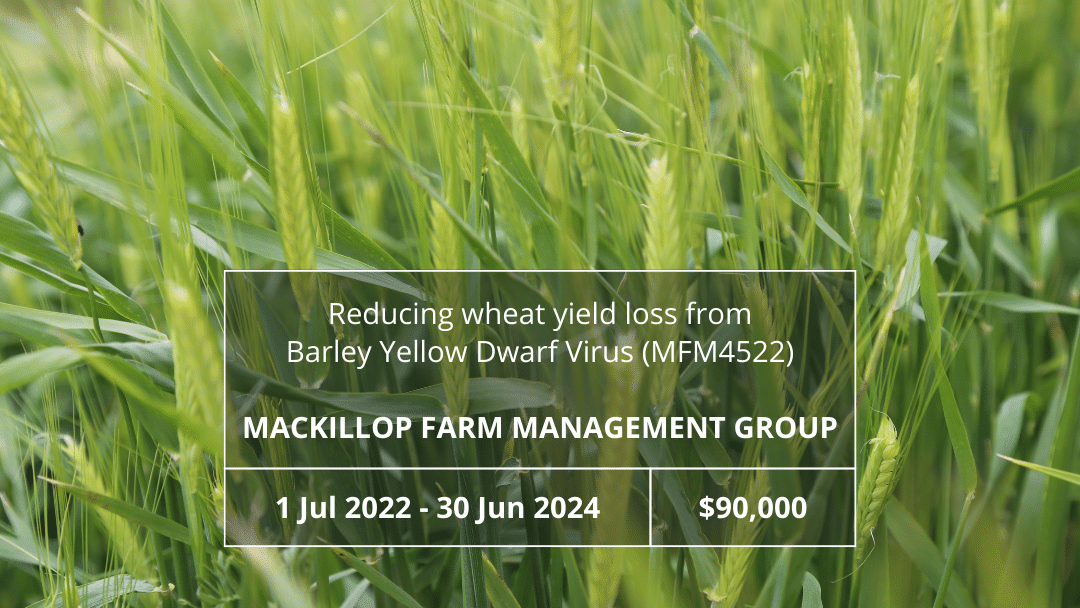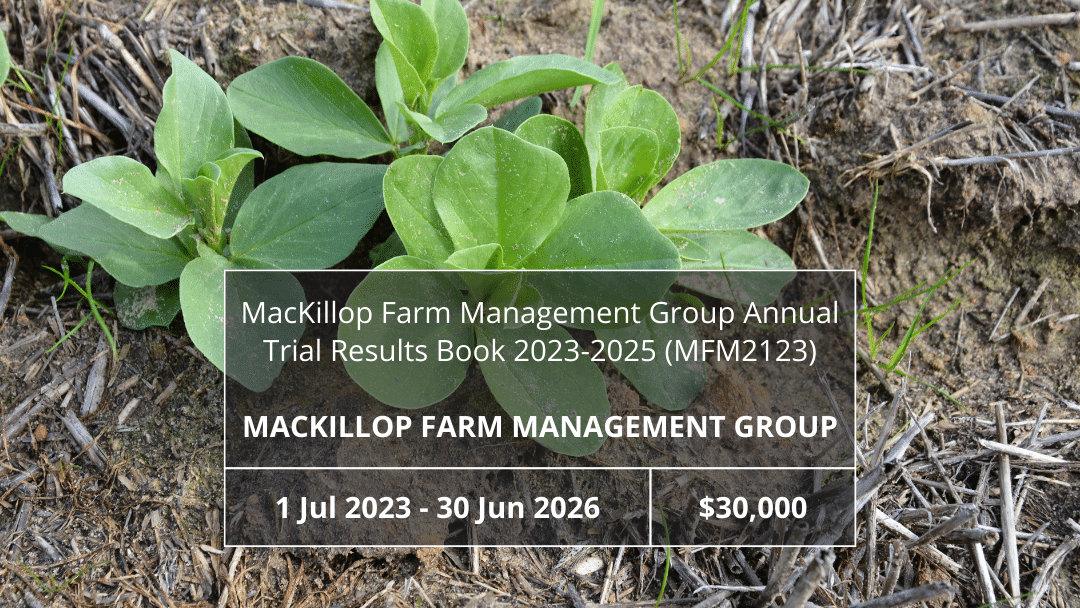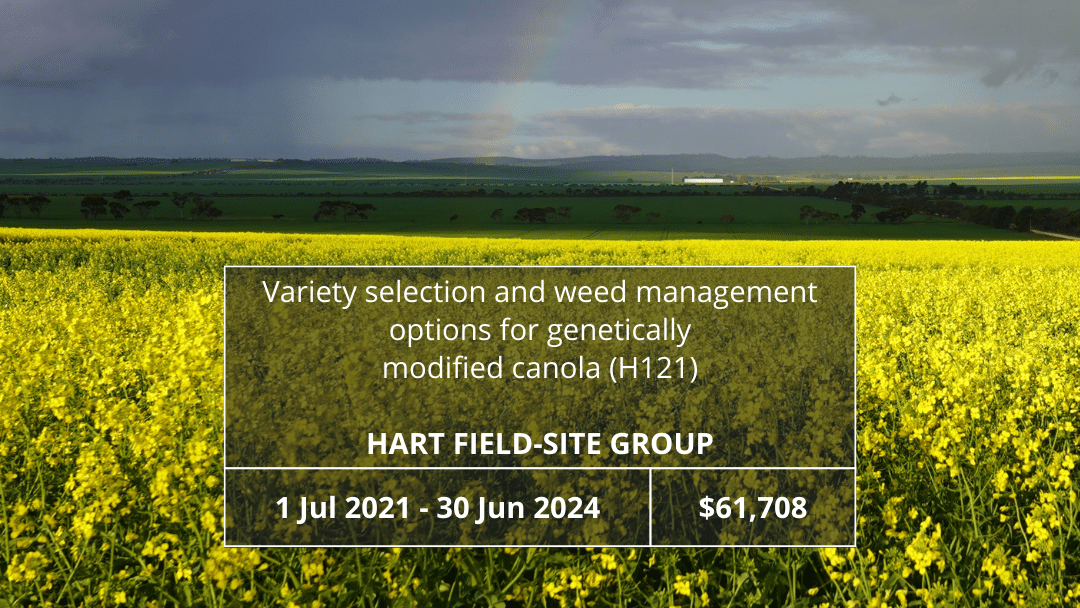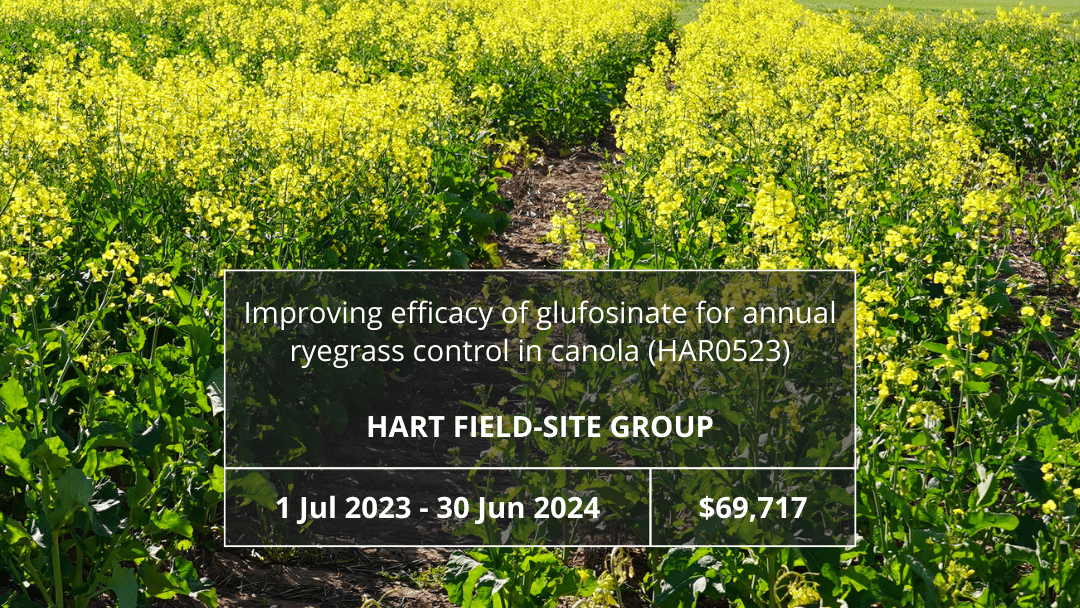Current Projects
Apply for funding
Key Dates
Reporting
Research Projects
Apply for funding
Key Dates
Reporting
Research Projects
Current Research Projects
Strategies for mitigating frost damage in the Upper North region (UNF1724)
Frost events have been a significant concern in the Upper North region, resulting in substantial crop losses and economic impacts in previous years. The Upper North is susceptible to frost damage at various stages in the growing season, leading to decreased yields. Therefore, a holistic approach applying proven research outcomes over numerous years will be trialled in local validation trials and extended through this project. This project is a co-investment, with GRDC providing 50% of the total funding.
An improved and rapid test to inform sodic soil management (UAD4624)
Large areas of South Australia are affected by sodic soils which results in lost agricultural productivity. Determination of gypsum rate requirements using conventional methods is problematic and can lead to increased costs for producers. The aim of this project is to develop an improved and rapid test for assessing gypsum requirements to improve crop production in sodic soils in South Australia.
Increasing pulse yields: focus paddocks to identify and manage soilborne constraints (UAD2624)
This project will assist South Australian growers to increase pulse yields by managing paddock variation associated with soil biotic and abiotic constraints. Data generated will also form the foundation for a decision support model. Focus paddocks will be mapped for pathogen levels and rhizobia as well as physical characteristics including pH, salinity and soil type. These factors will be related to remote sensing imagery and yield maps to determine the drivers of variation.
Multi-scale monitoring of pests and beneficial insects in canola cropping (UAD1424)
This PhD project will look to develop multi-scale (regional to paddock scale) monitoring methods for canola pests and beneficials, both pre-season and during season. The results will allow for improved risk analysis and decision making for integrated pest management by farmers and agronomists, avoiding over-use of insecticides.
The impact of annual ryegrass seed size on harvest weed seed control mill efficacy (TCO6424)
This project will quantify the variability in seed weight from field samples of the weed annual ryegrass (Lolium rigidum) and quantify how seed weight of annual ryegrass impacts the efficacy of harvest weed seed control (HWSC) impact mills.
Making the most of phosphorus(P) fertiliser inputs: Managing spatial variability and long-term strategies (TCO6024)
The overall aim of this project is to increase the profitability from phosphorus (P) fertiliser applications and determine sustainable P fertiliser strategies. This project focuses on two key P management areas: improving applications in variable paddocks/landscapes and refining long-term P management strategies on highly P responsive soils. This project will build on the results from SAGIT projects TC219 and TC221. This project is a co-investment, with GRDC providing 50% of the total funding.
Drought preparedness using barley architecture and phenology for biomass production (SAR5124)
The project aims to better understand the plant characteristics, including phenology and architecture, required to maximise biomass production for barley in grazed, grain and opportunistic grain and grazed scenarios across variable rainfall seasons. A diverse set of elite and novel varieties will be tested by different simulated grazing treatments across low, medium and high rainfall zones of South Australia.
Specialised research seeder to advance management of soil biological constraints (SAR3424)
Field research projects on the management of soilborne diseases and rhizobia are severely constrained by the limitations of current research seeders. The development of a specialised research seeder will enable SA researchers to undertake world leading research to develop innovative practices to manage soil biological constraints in broadacre crops. This project is for Stage 1 of a three-stage process to 1. review, 2. design and 3. build a state-of-art research seeder.
Grains pathology internship (SAR3324)
The project will support a Grains Pathology Trainee to be mentored by experienced staff from the grains pathology teams within SARDI Crop Sciences’ Plant Health and Diagnostics program. The mentoring will include laboratory and field pathology training provided by SARDI cereal and pulse pathologists, extension of information through written means, such as SARDI’s Crop Watch, participation in regional field days, and other industry support for grains pathology diagnostics.
Eyre Peninsula Farming Systems Summary 2024-2026 (SAR2424)
This project will provide partial cost for the printing and development of the Eyre Peninsula Farming Systems Summaries 2024, 2025 and 2026, enabling continued distribution of this important summary to all growers, industry representatives, researchers and consultants on EP. The Eyre Peninsula Farming Systems Summary is an annual publication consisting of research results undertaken on EP and other areas of relevance, and their implications to upper EP farming systems.
Novel health food products from oats – fermented, spoonable snacks (SAR1224)
The aim of this project is to use Australian grown oats in a new product format, that is not a breakfast cereal or bakery ingredient, that capitalises on the current market trends in ‘freefrom’ foods (in this case, free-from lactose or dairy) and fermented foods for improved gut health. The overall objective of the study is to develop healthy fibre enriched fermented spoonable snacks from oat flour/bran with a clean label (minimum number of food additives).
Convenient, delicious and nutritious value-added foods from Australian pulses (SAR0624)
This project aims to use a range of local pulses to make a range of attractive, delicious, nutritious and convenient pre-cooked food products that have wide appeal. This will include determining the appropriate processing steps for each grain type that would work in a commercial food manufacturing set-up to achieve acceptable grain texture and provide long shelf-life in can and/or pouch formats. The proof-of-concept products will be packaged in a variety of formats and tested with consumers, food manufacturers and food retailers.
Optimising lentil yields through rotation intransient salinity soils (NEW0224)
This project aims to make transient saline soils more productive again for growing lentils through the use of a chemical fallow phase of the rotation. The fallow allows both soil moisture to be conserved through stubble load, helping for lentil establishment, and will also aim to reduce the area of saline affected soil for the following crops.
Regional internship in applied grains research (HAR5524)
This project offers a regionally based internship program, providing a stepping-stone for early career researchers to receive high quality training and hands-on experience to develop their research skills. This program supports young researchers interested in grains RD&E to pursue further research roles while increasing research capacity within the grains industry. This project is a co-investment, with the SA Drought Hub providing an additional $34,068 funding.
Lentils for sustainable rotations on low-rainfall highly alkaline calcareous soils (GGG6624)
This project will improve the sustainability of SA’s diverse and expansive low rainfall cropping areas by expanding lentil production, as a legume break crop for cereals, on highly alkaline calcareous soils in these regions. It will build on the recent successful research, extension and expansion of lentil through the low rainfall Mallee type areas across South Australia, by targeting constraints to profitable production with a focus on the Upper Eyre Peninsula (UEP).
Appropriate fertiliser strategies for on-row lentil sowing in saline soils (CAS5724)
This project aims to determine the residual benefit of on-row and off-row sowing and appropriate fertiliser strategies for sensitive lentil crops in phosphorus deficient and moderately saline calcareous soil types of Yorke Peninsula. Research will investigate management techniques of utilising residual phosphorous in a cereal phase along with phosphorous placement at seeding to optimise lentil grain yields and economic returns. This project is a co-investment, with GRDC providing 50% of the total funding.
Wheat powdery mildew management strategies (AGX4724)
This project aims to demonstrate to growers and agronomists the effectiveness of existing and emerging wheat powdery mildew (WPM) control options across varieties with diverse susceptibility ratings. It will also raise awareness of the importance of cultural considerations with regards to WPM management and an understanding of pathogen resistance to commonly used fungicides. This project provides an opportunity to extend existing knowledge generated through current SAGIT-funded WPM projects.
Unravelling crop yield response to application of organic amendments on different soil types (ASO5624)
This project aims to assess the impact of organic amendments on soil condition and crop response on three contrasting soil types. Through this process, the aim is to provide growers with recommendations on ‘target soils’ where organic amendment applications can provide maximum benefit. Researchers will endeavour to define suitable frequency and application rates of organic amendments in combination with inorganic fertiliser.
Lead Agriculture Teacher (AGC6724)
The Lead Ag Teacher role supports schools to more effectively teach and implement agriculture throughout their curriculum. The program, now in its third year, is delivered by AgC consultant Sue Pratt, an experienced agriculture teacher and past President of the Agricultural Teachers Association of SA (ATASA).
Ag Excellence Forum 2024 (AEX0524G)
The Ag Ex Forum is held to bring together grower groups with industry, government, researchers and other expertise to address timely issues and an opportunity to extend networks. Forum 2024 will address the increasing pressure of sustainability trends and the role of technology.
Developing a DGT methodology to assess bioavailability of herbicide residues (USA121)
A robust testing system for imidazolinone residues is to be developed using Diffusive Gradient in Thin-Films (DGT) technology. This tool will provide information on bioavailability of herbicide residues independent of soil type characteristics. The DGT tool will be validated in spiked soils, in a range of soil types and two water regimes. The DGT tool for glyphosate residue is also to be assessed.
Pesticide effects on soil microbial functions in contrasting SA soils (USA3323)
The aim of this project is to understand how soil properties influence the effects of pesticides on soil health. The project team will assess six targeted pesticides in 10 contrasting South Australian broadacre cropping soils. This knowledge will deliver farmers essential information for identifying the best pesticide-soil combinations to maintain healthy soil microbial communities.
Canola profitability as a break crop in the Upper North (UNF2822)
This project aims to explore if new canola technology allows it to be a more reliable and viable break crop option in the Upper North agricultural zone. The project will assess the profitability of different canola agronomy packages in local validation trials (GM vs open pollinated TT) against wheat over a three-year period.
Enhancing grain production and quality traits for bread wheat (UA420)
Speed breeding to back cross F3-4 of wheat lines from AGT, Intergrain and LongReach Plant Breeders with lines that have potential to increase grain yields. These lines will be assessed for nitrogen use efficiency in glasshouse and field trials at Roseworthy, Mallala and Bordertown.
Revegetation for enhanced biocontrol of pest conical snails (UAD2522)
This study investigates the impact of native revegetation on suppressing conical snail populations on the Yorke Peninsula. The establishment of revegetation strips adjacent to grain cropping paddocks and near silos can enhance the survival of a beneficial parasitoid fly by providing essential floral food resources and refugia, boosting parasitism rates and suppression of pest conical snails.
Realising cereal yield potential using crop physiology and drone technology (UAD2222)
This project will be undertaken by SARDI researchers with the optimal flowering period for wheat and barley for the Murray Plains to be refined and validated from previous investment S/UA1021 through field trials and crop modelling. Drone imagery will be used to estimate both plant establishment and biomass of these field trials to help dissect key grain yield drivers independent of flowering time.
Agronomy strategies for frost management in pulse crops (UAD1922)
This project will be undertaken by SARDI researchers. Novel management strategies that either provide crop protection or avoidance during the critical reproductive stages, such as including mixed species cropping (intercropping) and delayed sowing, will be investigated to successfully grow pulse crops in frost prone environments.
Harvest and use of medic pods on-farm (UAD1722)
This project will research novel ways of harvesting and sowing medic pods which have the potential to reduce medic establishment costs by 60 per cent. A cheaper method of harvesting and sowing medic pods is expected to result in increased medic dry matter production and increased benefit to subsequent grain crops.
Delivery of beneficial organisms through seed coating to improve grain yield (UAD4423)
This is a pilot project focused on seed quality improvement and enhanced grain production in wheat, barley, chickpea and canola as major diverse crops in SA. This will be achieved by generating new formulas for seed coating that enhance the delivery of Trichoderma, mycorrhizal fungi and other beneficial microbes, nutrients and other effective additives.
Screening for genetic components of head retention in barley (UAD3223)
Barley head loss is an ongoing issue that leads to reduced yield based on environmental factors and cultivar sensitivity. Although management options exist, improved genetic solutions are needed to limit the seasonal and site variability. In this project, researchers will extend current knowledge of head loss management and peduncle structure to consider new cultivars and candidate genes that might influence head retention.
Manipulating spike architecture to improve wheat yield (UAD3123)
This project will be undertaken by SARDI researchers who will use a novel bread wheat mapping population and high-throughput phenotyping method (X-ray computed tomography) to measure spike traits that contribute to yield, and identify genetic markers associated with improved yield for breeding programs. This project includes controlled environment studies and field trials.
Improving industry response to white grain disorder and fusarium head blight outbreaks while protecting export markets (UAD3023)
This project will be undertaken by SARDI researchers and aims to improve industry preparedness for dealing with white grain disorder and fusarium head blight to reduce rejection and down-grading of grain at silos while protecting SA’s export markets. Grain samples, trial data, spore trapping data and weather data will be utilised.
Developing new breeding material to stabilise barley yields (UAD2023)
South Australian crops can be severely impacted by poor and variable growing conditions, which includes low-fertility soils. Crop plants possess strong instincts to reduce grain number due to variable growing conditions or reduced fertiliser. This is a major contributor to the yield gap in SA. This project seeks to help close this yield gap through the import and testing of new genetic material that makes barley less responsive to environmental conditions.
Higher barley yield through improved microbial interactions (UAD1823)
The aims of this project are to determine whether Australian barley varieties differ in their effects on the diversity of potentially beneficial soil microbes in the field, and to investigate the genetic control of any observed differences. This will result in growers being able to choose varieties that will benefit soil biological health and provide new molecular tools for breeders to use in selection to develop new varieties with improved soil biological health.
Minimising market access risks in herbicide tolerant pulses (UAD1723)
This project will be undertaken by SARDI researchers and aims to exploit natural genetic variation in herbicide metabolism ability to reduce the market access risks associated with chemical residues in herbicide tolerant pulse grain. This project will identify variation in the ability of lentil and faba bean genotypes to metabolise metribuzin and investigate whether herbicide residues are retained or reduced in plant-based protein extraction processes.
Preparing for a pulse protein market – pulse options for expansion areas (UAD1623)
This project will be undertaken by SARDI researchers and aims to provide information to growers when considering a pulse protein market in key pulse expansion areas. This will be achieved by evaluating current genetic variation for protein content and seed quality, evaluating the crop choices for different environments, and by conducting an economic analysis.
Colour preservation in faba beans to enhance quality and value (UAD1423)
Seed colour is an important quality trait required to meet the highest value export markets for faba bean, with consumers demanding a pale tan colour. Faba beans darken on storage, and storage temperature and moisture both affect this process. This project will be undertaken by SARDI researchers and has three aims: to determine what chemical mechanism is behind the darkening process; to find a low-cost post-harvest treatment able to slow down the darkening; and to look for varietal differences in storage darkening.
Optimising crop establishment under dry and marginal soil moisture (UAD1323)
The aim of this project is to improve the effectiveness of dry sowing focusing on wheat and canola. It will conduct experiments at three sites with different rainfalls and soils to examine the effect of sowing practices on establishment at a range of sowing times. The project will explore the ability of remote sensing to measure seedbed moisture content to aid decision making. Controlled environment studies on emergence in different soils and moisture contents will support the field studies.
Pairing pulses for improved yield, protein, agronomy and profit (UAD1223)
This project will be undertaken by SARDI researchers and will investigate if the pairing of faba bean and semi-leafless field pea will benefit both crops by increased seed and protein yield; reduced lodging, disease and harvestability issues; and improved yield and reduced N fertiliser cost of the following wheat crop. This system could increase faba bean representation in more marginal areas and increase yield in drier seasons as field pea is better adapted to drier conditions.
Processing solutions for a novel high-protein food ingredient from vetch (UAD1123)
Researchers have recently found a way to detoxify vetch via a steeping method. This project will be undertaken by SARDI researchers and aims to develop a low-cost, robust method for physical removal of the β-cyanoalanine toxin from common vetch, and capacity in quantitative analysis of toxin levels, towards including vetch as an alternative feedstock for plant protein production in SA.
Improved management of variable phosphorus requirement and strategies for highly responsive soils (TC221)
Phosphorus (P) response prediction based on spatial data in variable soils is to be validated in a series of field trials encompassing different soil types. Best practice for long term management of high P response sites is to be determined.
Using grain protein maps to optimise nitrogen fertiliser to paddock scale nitrogen variability (TCO2423)
Grain protein map data and other spatial data layers will be investigated for application in targeting nitrogen (N) inputs more precisely to optimise N use, grain yield and protein and profitability. A combination of spatial data and targeted small plot N response trials will improve understanding of how to utilise available spatial data layers for variable rate application of N.
Eyre Peninsula Farming Systems Summary 2021-2023 (S121)
The Eyre Peninsula Farming Systems Summary is an annual publication consisting of research results undertaken on the EP and other areas of relevance, and their implications to upper EP farming systems.
Ground truthing wheat and barley flowering time in the Mid North and Mallee using the Mesonet (SAR1222)
The project aim is to characterise the environmental differences across the Mid North and South Australian Mallee regions and the subsequent effect on planting time and variety selections for cereals. This aim will be achieved by utilising the Mesonet weather network to ground truth wheat and barley flowering time.
Profitable vetch – agronomy, breeding and market development (SAR2223)
This project will develop a multi-faceted role for a research officer looking into vetch production, agronomy and breeding. The project will: 1) consolidate current and previous agronomic research conducted in vetch; 2) produce updated agronomy recommendations; 3) leverage outcomes from oaten hay research to improve vetch hay production, and 4) integrate new breeding technology into the National Vetch Breeding Program.
SA Crop Variety Sowing Guide publication (SAR1023)
The aim of this project is to continue producing the annual SA Sowing Guide for growers and advisers. The SA Sowing Guide communicates the most up-to-date information on new and current varieties across a range of crop types. It combines the most recent yield results from the National Variety Trials with the most relevant varieties for SA as well as agronomic and pathology information.
Extension support for SA Drought Hub internship program (S/UA721)
This project links to the Federal Government Future Drought Fund which has a South Australian Hub, to demonstrate and increase grower adoption of innovative drought resilience tools, technologies and practices. The SA Drought Hub extension intern will run a series of workshops to extend the outcomes of previous SAGIT investments aligned to the Hub.
Measuring and managing yield loss caused by Phoma root in lentil and faba bean (S/UA421)
The effect of Phoma root rot on yield in lentil and faba bean is to be measured in a series of field trials which are inoculated with varying rates of the pathogen. Trials are subjected to various levels of soil water via supplementary irrigation to investigate the role of soil water in the root rot disease. A range of chemical options are tested for disease control.
Improving management of Group A resistant barley grass in current farming systems (S/UA121)
Control of resistant barley grass is to be investigated on upper Eyre Peninsula through 1) impact of new herbicides and management options in cereals and break crops, 2) understanding the seed dormancy and germination patterns of barley grass in that region, and 3) identifying soil constraints that impact on herbicide efficacy by monitoring five farmer paddocks per season.
Enhancing farmer knowledge of soil function to improve management outcomes (MSF0823)
The focus for this project will be to produce a highly engaging and easy-to-read publication resource titled 101 questions about SA cropping soils you were never game to ask. This will help farmers identify and understand subsoil constraints, soil water dynamics and in turn make informed decisions to help them manage emerging soil related issues unique to SA cropping environments.
Frost Research and Learning Centre (MHR1523)
The project objective is to extend the research and extension conducted in the SAGIT/GRDC co-funded Frost Learning project (MHR121) for another year. This will help validate results, particularly from 2021, and give opportunities to reinforce the significance of frost management and introduce new concepts.
Reducing wheat yield loss from Barley Yellow Dwarf Virus in the HRZ (MFM4522)
Barley Yellow Dwarf Virus (BYDV) consistently and significantly impacts wheat crops in the high rainfall zone (HRZ) of South Australia. This project aims to evaluate agronomic tactics and insecticide regimes to reduce the impact of BYDV on wheat yields in the SA HRZ.
MacKillop Farm Management Group Annual Trial Results Book 2023-2025 (MFM2123)
To fund compilation of MacKillop Farm Management Group Annual Trials Results book for trials undertaken in 2023, 2024 and 2025. The book will be available in March the following year.
Variety selection and weed management options for genetically modified canola (H121)
The aim of this project is to better understand environmental conditions influencing the efficacy of glufosinate for annual ryegrass control and provide spraying strategies for successful and increased weed control.
Improving efficacy of glufosinate for annual ryegrass control in canola (HAR0523)
The aim of this project is to better understand environmental conditions influencing the efficacy of glufosinate for annual ryegrass control and provide spraying strategies for successful and increased weed control.

